Photo: Steve James
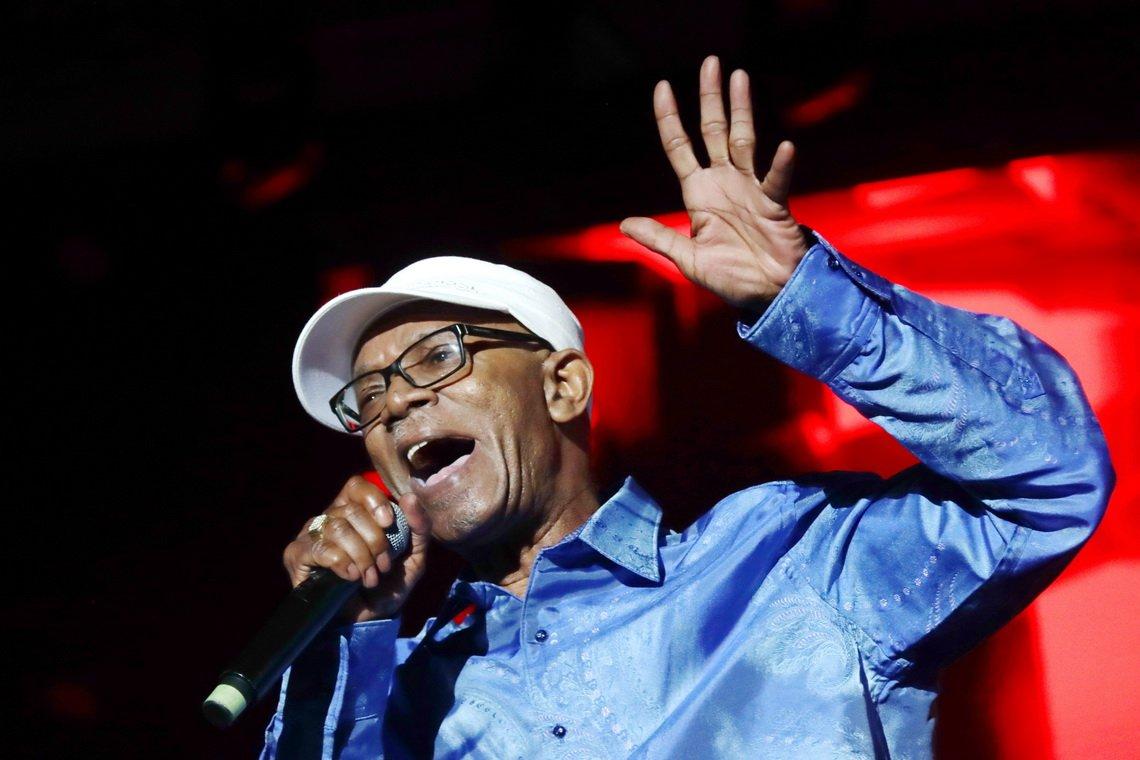
interview
Living Legends: Beres Hammond On His Enduring Career, Timeless Music & 'Brand, Jamaica!'
Beres Hammond has had a lengthy career in reggae, both as a member of Zap Pow and as a solo artist. The two-time GRAMMY nominee discussed his enduring popularity and what he hopes younger artists can learn from his story.
Prior to performing his first song at Reggae Sumfest 2024, Jamaica’s largest music festival, legendary vocalist Beres Hammond shared a concise but important message. "Jamaica," he bellowed, seemingly as a greeting, which he followed by shouting "brand." "We are a brand! I am, you are. Brand! Say it," he instructed. "Brand, Jamaica!"
Throughout his July 20 Sumfest set, Beres interspersed the catchphrase "brand, Jamaica," as if reminding the audience of 15,000 (and the younger artists backstage) at Montego Bay’s Catherine Hall, of Jamaican music’s significant legacy and widespread impact. Countless musical gems comprise brand Jamaica, but few, if any, are more precious than the songs of Beres Hammond.
Born Hugh Beresford Hammond in the small fishing village of Annotto Bay, the two-time GRAMMY nominee first gained notoriety in the early 1970s fronting reggae/R&B fusion outfit Zap Pow. As a solo artist, Beres’ songs primarily explore the erratic complexities of romantic relationships; his charismatic, powerfully granular vocals have been likened to that of soul legends Otis Redding, Teddy Pendergrass and Sam Cooke.
"I never thought I’d reach this point," Hammond tells GRAMMY.com. "Even now, I still show respect to the folks that helped me to grow and are helping me to still be relevant."
At Sumfest, accompanied by his superb Harmony House band and three flawless female backup singers, Beres delved into his beloved catalog, as the audience, spanning three generations of fans, loudly sang along. After performing his first No. 1 single, the 1976 soul nugget "One Step Ahead," which held the top spot in Jamaica for over three months, Beres reminisced onstage, "People thought I was an American guy. It was my first taste of success, but I had no money, I couldn’t even ride the bus. I was broke!"
Beres released a spate of popular singles beginning in the late 1970s into the mid-1980s yet he continued to struggle financially. His situation improved with his initial release on his own Harmony House label, the 1985 hit "Groovy Little Thing."
A sequence of hits followed recorded for various Jamaican producers including 1987’s "What One Dance Can Do," which spawned several answer records (including Hammond's own "She Loves Me Now"). His 1990 defiant social critique, "Putting Up Resistance", produced by Tappa Zukie, remains one of the biggest reggae songs from that era.
Working with producer Donovan Germain’s Penthouse Records, in 1990 Beres laid his vocals over a riddim called "A Love I Can Feel" (after singer John Holt’s 1970 hit, itself a Temptations cover). The resultant "Tempted to Touch" topped reggae charts internationally and commenced a stream of Penthouse hits for Beres that also included "A Little More Time" and "Who Say," collaborations with a gruff-voiced teenaged sensation, Buju Banton.
As his fan base expanded throughout the Caribbean and reggae Diaspora, alongside increasing acclaim for his stellar songwriting and passionate, pliant vocals, it was inevitable Beres would attract major label interest. He signed to Elektra Records, for whom he released just one album, the outstanding In Control, in 1994, featuring the sublime, sultry R&B flavored single "No Disturb Sign."
Between 1996 and 2018 Beres released seven self-produced studio albums through his Harmony House label’s joint venture with Queens, NY based VP Records, including two GRAMMY nominated titles in the Best Reggae Album category. Beres received the nod for his 2001 album, Music is Life at the 44th GRAMMY Awards and again at the 56th GRAMMY Awards for his 2012 album One Love, One Life.
Beres has collaborated with dancehall superstars Sean Paul and Popcaan, and his work has been referenced by Jamaican artists including singer/songwriter Tanya Stephens and sing-jay Mavado. Although he hasn't had a U.S. mainstream hit, Hammond's music is nonetheless recognized by some of the industry’s biggest names. In 2012 Rihanna tweeted the lyrics to Beres’ "They Gonna Talk," obliquely addressing her then rekindled relationship with Chris Brown; at an event in Barbados, she was seen singing along to a medley of Beres hits. Drake conveyed his fondness for the iconic vocalist by retweeting a fan’s declaration that she’d like Beres Hammond to sing at her wedding. Wyclef Jean conclusively expressed the veneration due the bespectacled songster on the outro to his 2001 duet with Hammond "Dance 4 Me," bluntly stating, "All you fake singers, bow down to the legend."
Beres Hammond's most recent single "Let Me Help You" was released on May 3; VP Records says a new Beres project is possibly due by the end of 2024. In between rehearsals for a spate of performances in the New York tri-state area, Beres Hammond sat down with GRAMMY.com and discussed his enduring popularity, his messages to younger artists and the meaning of "brand, Jamaica."
Welcome back to New York City. I was at Reggae Sumfest and I saw your wonderful performance. There’s something extra special about your performances in Jamaica, seeing, hearing different generations of fans singing along to your songs.
What I like most is when the young folks, teens and 20s say, "My mom used to listen to you when she’s in the kitchen working, that’s how I know these songs." They still love them, still sing them. It makes me feel like I came out here to do a job and everything’s been accomplished.
Why do you think your music has such vast appeal among various age groups?
I think it’s the way I present my songs. I make it so easy for everyone to have access. I don’t use Wall Street words; I make it A-B-C. I just do my thing in the simplest manner so everybody can sing it!
You just performed two sold out shows at the Coney Island Amphitheater and the New Jersey Performing Arts Center part of your Forever Giving Thanks tour. So many decades after you started out, that must feel extremely gratifying.
Everyday feels like a new day on the job. I’m giving thanks that I’m in good health and I’ve still got some voice left. All the folks around me, like the band and crew, they’re treating me as if we just started. When you have people around you like that, it’s almost like the journey has just begun.
Have you been working with the same band members for all these years?
For a lifetime, almost. Some have been with me for over 30 years. For the newest members, it might be 10 years.
Throughout your Sumfest performance you intermittently shouted, "brand, Jamaica!" What does that mean?
I was talking about me, what a beautiful brand, but also Jamaica, itself, to the world. Helluva brand! I join the folks that still have Jamaica on the world map as a brand to be reckoned with. Because we nah go nowhere. We deh yah! [We’re here].
I’ve always thought of myself as a brand and upcoming artists should recognize the legacy that’s left here for them. I say "brand" again, to make them understand the role they’re supposed to be playing in what was handed down to them. Be proud of what you’ve got because you are standing on some broad shoulders; be careful how you step on those shoulders.
Coming up in the 1970s and early '80s, whose shoulders did you stand on?
What introduced me to wanting to sing was a few voices including Otis Redding, Sam Cooke, Stevie Wonder, he’s still amazing. I used to love Aretha Franklin and I still love Patti LaBelle. I listened to those voices and said, "Yeah, I would love to sing like them." Then checking on my Jamaican folk, Alton Ellis, Delroy Wilson, hearing those voices, I thought, there must be something out there for me.
Learn more: Remembering Coxsone Dodd: 10 Essential Productions From The Architect Of Jamaican Music
Are there any artists you are mentoring, artists that are standing on your shoulders?
Some of them come up to me and say Father B — they call me all kinda names, Father B, Dada, and they give me some nice accolades. I don’t seek them out, they find me and I always have the right things to say to them, if they ask. Kids still want to learn and being around me, you will learn many things.
Thirty years ago, in 1994, you released your album 'In Control' for Elektra Records. It's still one of my favorite albums.
At that time Elektra went into some merger. The beautiful Elektra crew working with me — some got fired, some went to other places; it was a mess, man. That had a great effect on what the album should have done and really turned me off from Elektra and major labels. This is how people with their big bag of money treat people, come in, push us around. But through the years, I’ve learned that [Elektra] took my music to places that I don’t think I would have reached, so it helped me along.
You continue to have a very successful career, but I can’t help but wonder, had 'In Control' received the push it should have, would your music be better known beyond a reggae audience?
I don’t know, but I know where I stand now and where we are still aiming to go. That never came out of our focus because, hey, the sky’s the limit.
Where are you aiming to go, what are some of the things that you’d still like to do?
I’d like to sing that song that makes the whole world sing along. I’m not sure if I’ve made that one yet.
I hope that my Jamaican brothers and sisters who are making music take it seriously and remember, you’re an influence. Ask yourself, what kind of influence do you want to be to the next generation? Do you want to be the one to make them have a better education? Do you want to be the one that makes them aspire to be leaders? Or do you want to be the one to send them to prison?
Is there any place that you haven’t yet performed but would like to?
People have asked me, what’s my favorite place to perform? I still don’t know. My favorite place is anywhere in the world; once you gather to see me, oh God, that’s my favorite place.
How has the music industry changed in the years that you’ve been in it?
You have to brace to face any new challenge in music. But all I’ve ever wished for is, no matter what kind of changes the music goes through, keep the thing positive so the people can learn. I can’t tell the younger generation what to do. I had my time and did what I had to do; you have to allow them to be themselves, too. Whatever changes the new generation wants to make, I’m there with them; just keep those values and you’re good.
On Jan. 1, 2023, you and Buju Banton put on a very successful concert in Jamaica called Intimate. Any chance you’ll bring that back?
They just talked to me yesterday about it. [Hammond imitates Buju’s resounding voice] "What ‘appen? What are we saying? Second leg? Father B, give I the green light." So, we are looking forward to bringing that back in January 2025.
Read more: Buju Banton's Untold Stories: The Dancehall Legend Shares Tales Behind 10 Of His Biggest Songs
You’ve recorded many songs with Buju and in 2023 you released another collaborative single "We Need Your Love"; an album was expected to follow. Are there any release plans for the Beres/Buju album?
We’ve already recorded 12-15 songs so when them ready, they will tell me. I did songs for Buju and he did songs for me.
Earlier, you mentioned turning on the radio to hear a song that everyone will sing along to; do you listen to Jamaica’s radio stations to hear the latest music?
I listen to talk shows to tap into what the country is doing. You have people calling in, talking about what the prime minister is doing, how many people died today. Music is around me through my kids, my friends. I’m up on everything; without actually listening to it, I’m hearing it.
You have six children; some are pursuing music careers. Tell me about them.
One of them, DJ Inferno, he’s always on the road with me; he plays before I perform, and he mashes up the place all the while. My son Rasheed is in production, trying to establish his own label, he’s ready to start releasing music. One of my daughters, Nastassja, they call her Wizard, she’s a writer, artist, producer. My other daughter, Andrene, is an actress (Andrene Ward-Hammond stars on the CW Network’s "61st Street") and she’s on tour with me looking after my personal needs.
Sometimes I am out here with all six of my children. It’s a beautiful thing. They make me proud.
More Reggae News
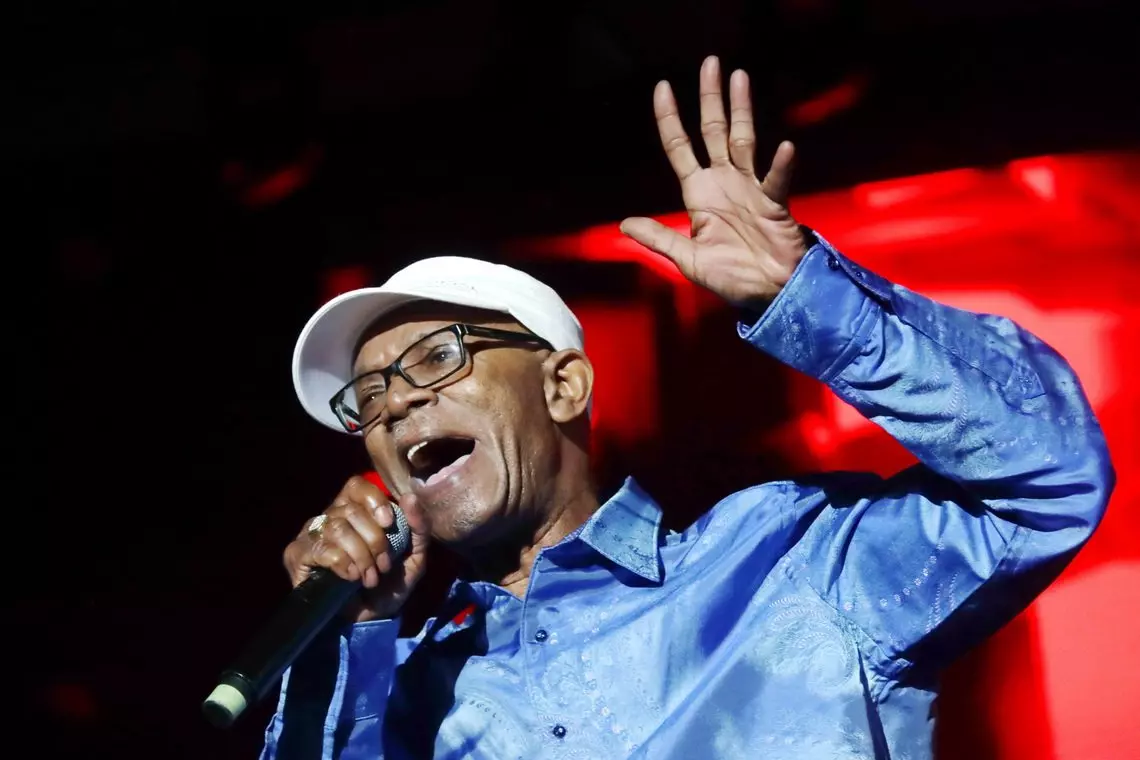
Living Legends: Beres Hammond On His Enduring Career, Timeless Music & 'Brand, Jamaica!'
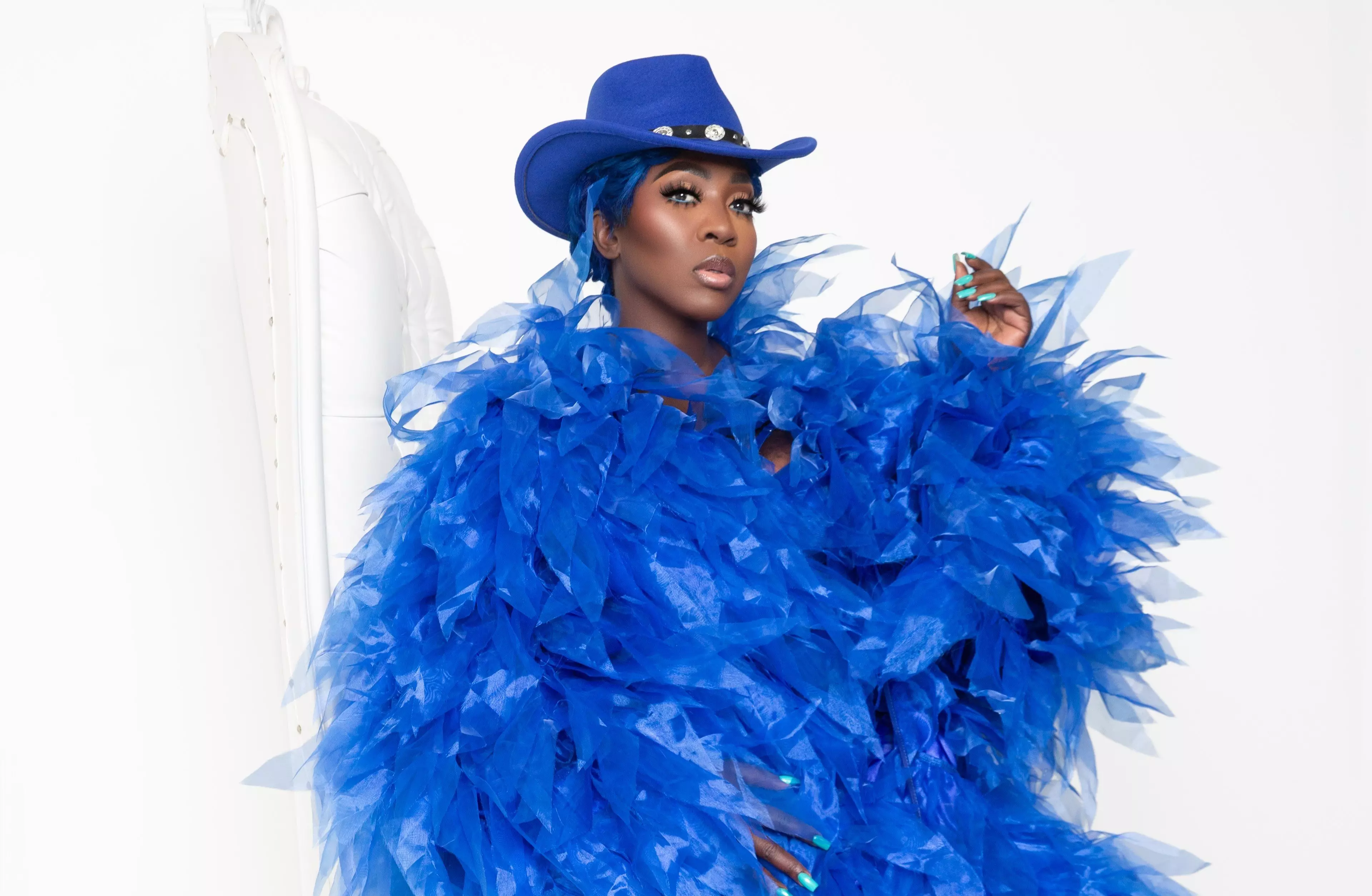
Dancehall Legend Spice Reflects On 'Mirror 25,' Her Near-Death Experience & Owning Her Own Vision
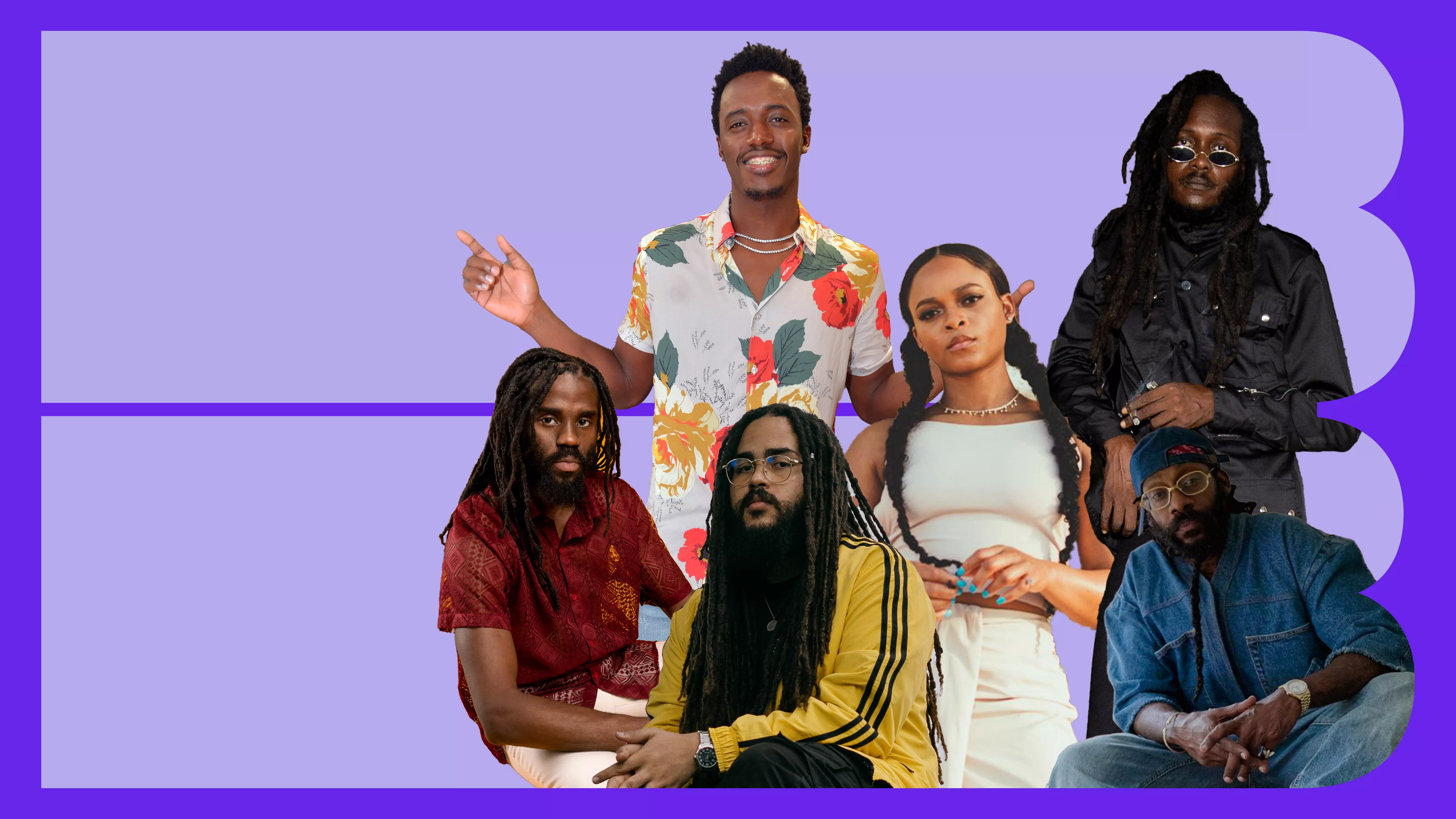
10 Artists Shaping Contemporary Reggae: Samory I, Lila Iké, Iotosh & Others
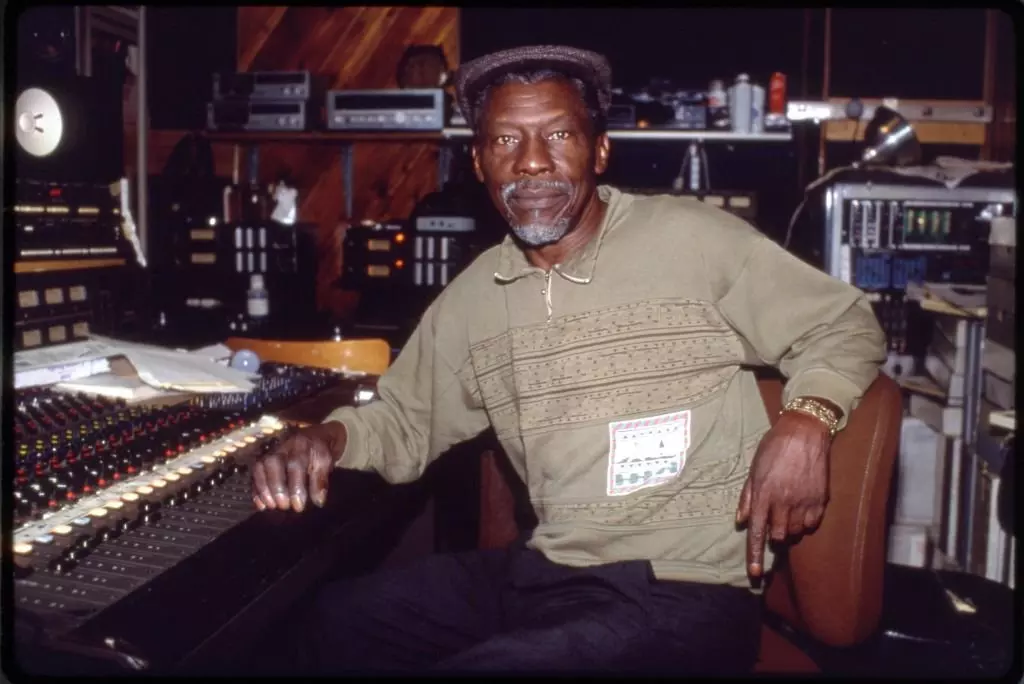
Remembering Coxsone Dodd: 10 Essential Productions From The Architect Of Jamaican Music
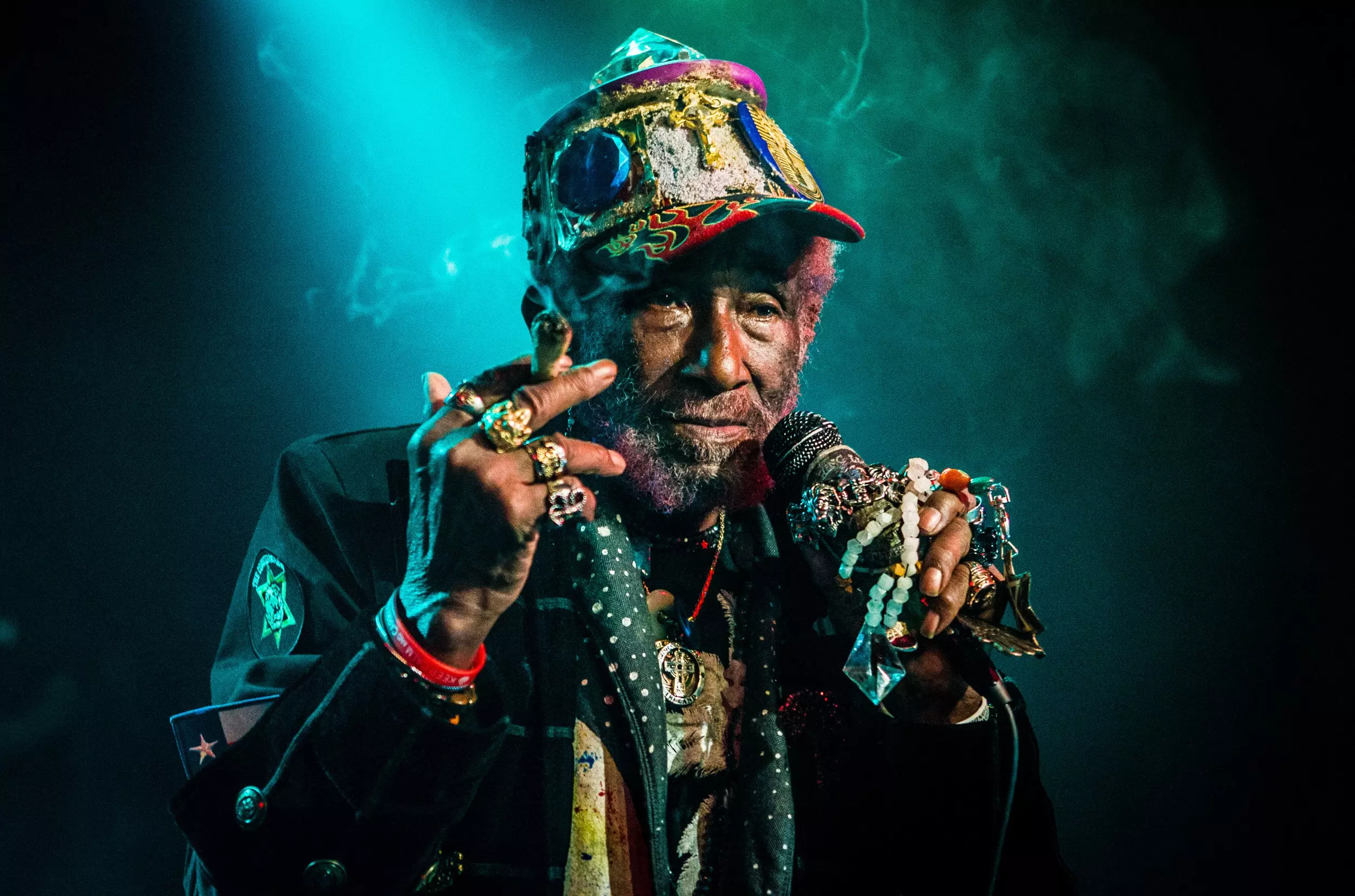
Lee "Scratch" Perry Documentary Director Sets The Record Straight On The Reggae Icon's Legacy — Including A Big Misconception About Bob Marley
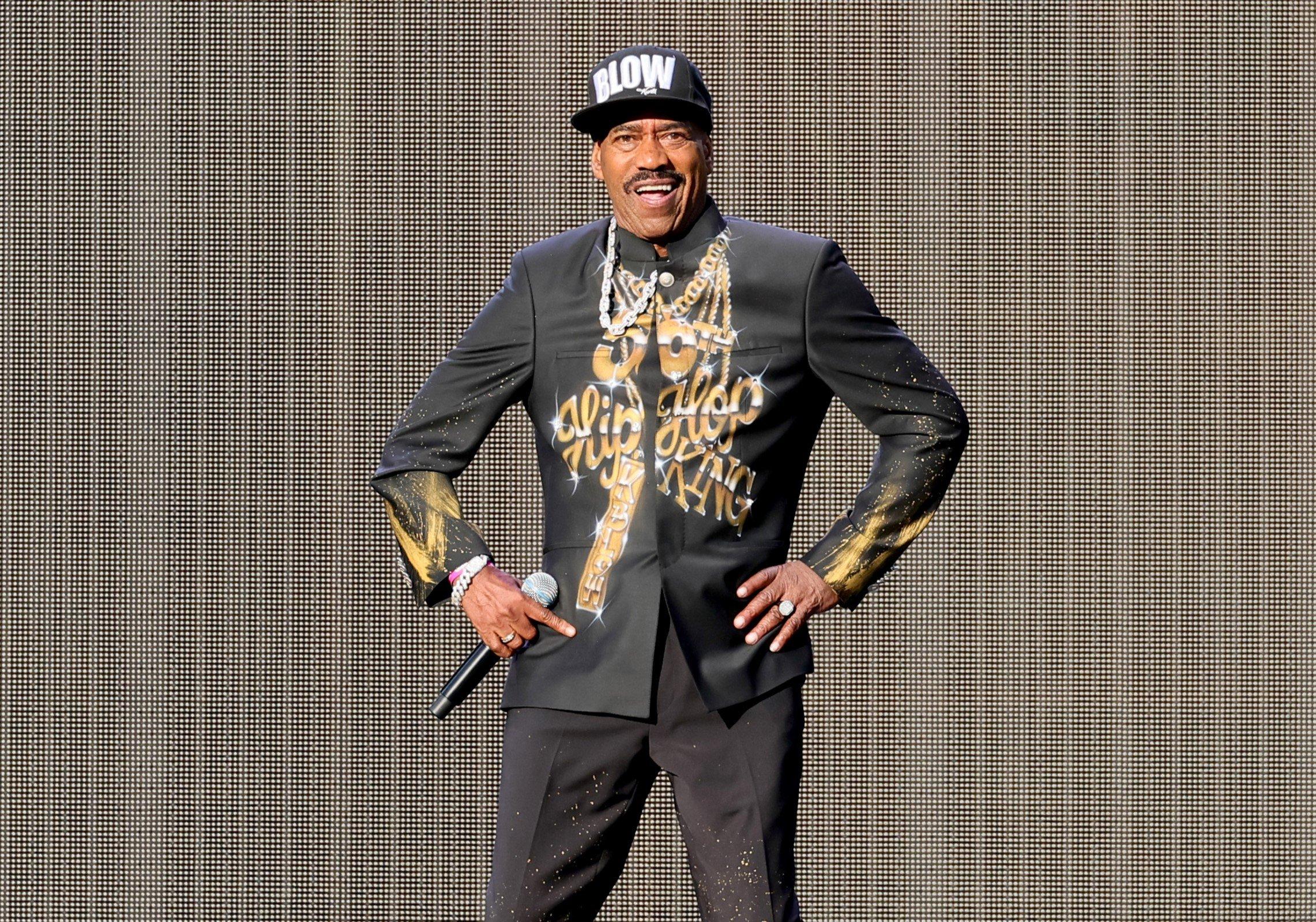
Photo: Theo Wargo/Getty Images
interview
Living Legends: Kurtis Blow On How Hip-Hop Culture Was "Made With Love" & Bringing The Breaks To The Olympics
More than 40 years after he became hip-hop's first commercial breakout star, Kurtis Blow is still moving the culture forward. The rapper and OG B-boy reflects on hip-hop’s rich history, and the impact of seeing hip-hop represented at the 2024 Paris Games.
On the eve of the first-ever Olympic breakdancing competition, hip-hop legend Kurtis Blow was thrilled. It was the first time one of the core elements of hip-hop culture had reached such a global stage.
Alongside DJ Kool Herc (whose breaks provided the soundtrack for B-boys and girls), Blow is credited with popularizing breakdancing. The rapper began breaking as a teenager in the early 1970s, as part of the Hill Boys breaking crew — named for the Sugar Hill area of Harlem where Malcolm X first started his galvanizing pro-Black movement —
And while the International Olympic Committee decided to remove breakdancing from the 2028 Olympics, Blow is unbothered. As far as he’s concerned, his legacy and the legacy of breaking itself is all but set in stone.
"It was definitely something special," Blow tells GRAMMY.com. "And I wasn’t the only one who realized it at the moment it was happening."
Born Kurtis Walker, the Harlem-based Blow began DJing when he was just seven years old. In 1979, the 20-year-old's "Christmas Rappin’" sold over 400,000 copies and turned the up-and-comer into a household name. But it was his follow-up single, 1980’s "The Breaks," that helped launch a whole new genre: rap music. "The Breaks" became the first hip-hop album to receive a gold certification from the RIAA, and proved that Blow wasn’t just a one-trick pony.
Kurtis Blow proved to be immediately influential on the then-nascent rap scene. When Rev. Run of Run-D.M.C. started his career, he billed himself as "The Son of Kurtis Blow" to give him an air of credibility that helped propel the hip-hop trio into the pop culture stratosphere. But Blow's influence didn’t begin and end with his "adopted son": Everyone from Russell Simmons to Wyclef Jean has worked with Blow, and he has been sampled by Nas ("If I Ruled The World" is all but an interpolation of Kurtis Blow’s song of the same name), KRS-One and many others. In fact, more than 100 songs have used samples from "The Breaks," and nearly 1,500 songs have used a sample or an interpolation from Blow’s discography.
Learn more: Essential Hip-Hop Releases From The 1970s: Kurtis Blow, Grandmaster Flash, Sugarhill Gang & More
Kurtis Blow was also one of the first rappers to sign to a major label (Mercury Records) and was the first rapper to be a multihyphenate (in addition to his music, Blow worked as an actor on films like In a Dark Place and California Dreamers, and was the musical coordinator for the legendary hip-hop film Krush Groove). Blow continues to work steadily in hip-hop today, though he eschews the legendary breaking parties in favor of cultural events that offer a new glimpse into the culture he helped create.
To wit, Blow is performing with The Hip Hop Nutcracker, in which Tchaikovsky’s classic score is set to breakdancing and modern hip-hop dance; the emcee will perform a brief set to kick off each show. A nationwide tour kicks off in Southern California in November and concludes at the end of December in Durham, North Carolina.
Kurtis Blow spoke with GRAMMY.com about the importance of bringing breaking to the Olympics, reconciling his ministry with modern hip-hop’s message, and his four-decade legacy.
This interview has been edited and condensed.
Breakdancing has been a huge part of hip-hop culture for many, many years — and it’s long overdue to be recognized on a global scale like the Olympics. What are your thoughts about seeing this movement that you started getting this kind of recognition?
This whole culture that we call hip-hop started back in the 1960s. With the Civil Rights movement, community organizers, and government officials all debating about something so basic: the right to all be seen as equal and free. It was a traumatic time, you know? But we had music that was so relevant to the whole movement.
By the time the late 1970s and early 1980s came along, everyone was trying to escape all of the traumatic racism that was still going on. And music became our escapism. That’s where breaking came in: everyone was just trying to mimic James Brown on the dance floor. You’d see one guy doing his thing, and everyone would form a circle around him. Pretty soon, someone else would join the circle and challenge him. And before you knew it, there was a whole competition — and whoever won became the most popular in the club.
That kicked it all off. To see it recognized on such a large scale just reaffirms, to me, that this hip-hop culture of ours was made with love.
There were breaking films such as 1985's 'Krush Groove' that were completely revolutionary in that it gave everyone — not just those within the culture — a view into the world of hip-hop, and suggested what it could become. At the time, you were becoming the first commercially successful rapper and one of the pillars of what would become the New York sound. Were you aware that you were on the precipice of something revolutionary?
I don’t want to call myself a visionary or anything like that, but I did know that this was something special, because I saw how quickly it spread around different boroughs in New York City.
From Harlem and the Bronx, and then over into Queens, Brooklyn, and even New Jersey, it was amazing to see everyone just gel around that whole hip-hop scene. As I said before, we all needed that escapism, you know? Forget about your troubles, just come and dance.
With me being in Harlem, right down the block from the Cotton Club and that whole mindset around dancing becoming America’s pastime — just coming from that era, where we had to go to the parties to have a good time — [I knew] that we had created something that would outlast us.
Not only did you attend divinity school, but you are also an ordained minister. How do you bridge those two aspects of your life and how do you reconcile being a rapper with being a minister?
That is such a great question, and thank you for asking.
It’s very simple: God is the Creator. God created hip-hop. We have to start with that, right here. God gave us the talent to perform the music; he gave us the passion to want to spread the music to the masses. He gave us the desire to say, "Hey, come take a look at me! God has blessed me with this — can you do this?"
Now, when you talk about the actual elements of hip-hop — that is, the emcees, and the message that we bring — it’s crucial to understand that we are commanded by God to uplift our community and to show them love. This is the actual essence of hip-hop: peace, unity, love, and just having safe fun.
My mission is to believe in the faith that God is real, and God is in the miracle business. I have seen nothing but miracles for the last 45-50 years in this thing called hip-hop. And it’s important to understand that God is in the mix, and we are all blessed by the common denominator known as hip-hop. It should be our mission to get that back.
As for what’s going on today — the nature of the lyrics, the gangster rap, and all the violence — it didn’t really start out that way, did it? And if we can inspire the future for our youth, then we’ve made a difference. Because the future is in their hands, and we need to inspire them.
But, as a counterpoint, times are different today. And what these men and women are speaking to may not necessarily be destructive — rather, there could be a case made where they’re merely being street poets, and telling the reality of life as they see it. What advice would you give to those people who are telling a different story than the one you told all those years ago?
We are called to be these soldiers, warriors, servants, and communicators. So I understand their reality is different, you know? The world is upside down. The kids out there are just telling it like it is. They’re communicating their reality.
But I think that we should not only communicate how it is, but how it could be. And how it should be.
Think of how different it would be if they also gave some inspiration for a positive future: "Yeah, we goin’ through this, we goin’ through that, but with God, you can overcome all of that. With prayer, you can have miracles, and blessings, come down."
Even if you just understand the nature of the reality that we’re going into right now — things like mass incarceration, the drug epidemic, gun violence, the war profiteering off of Black and brown bodies — it falls upon the shoulders of the elders of this community, this hip-hop movement, to inspire and communicate the possibilities to the younger up-and-comers.
They need to understand that they are the product of royalty. They are the descendants of kings and queens of Africa. They need to honor themselves and honor their ancestors, accordingly.
The culture of hip-hop isn’t just about the music. It’s about fashion, slang, cars, the sports — if you think about it, anthropologically, hip-hop is a civilization onto itself. But, as with all things, so much of it has been co-opted and mainstreamed. How do we bridge the divide between the originators and the colonizers?
Only love can bridge that gap between the ages, the races, our government — the diversity of all these different countries — you know, it needs to be all love.
This is what it’s going to have to take for us to change our present reality. And I feel that in hip-hop, that is the key to that future. The OG’s had the right mindset: peace, love, unity, and having safe fun. We need to get back to that.
When you look back on your career and the legacy you leave behind, how do you want to be remembered?
I remember being in divinity school at Nyack College in New York, and the professor asked the whole class the same thing. And I thought about it for a while, you know? I thought about being remembered as a pioneer of hip-hop — an OG breakdancer — a DJ when I was just seven years old — and an incredible educator.
But what stuck with me was being known as a man of God. That’s it. Because that encompasses everything that I have been through and survived. All of my success, and everything you know about me, comes from God — and to God be the glory.
Latest Rap News & Music
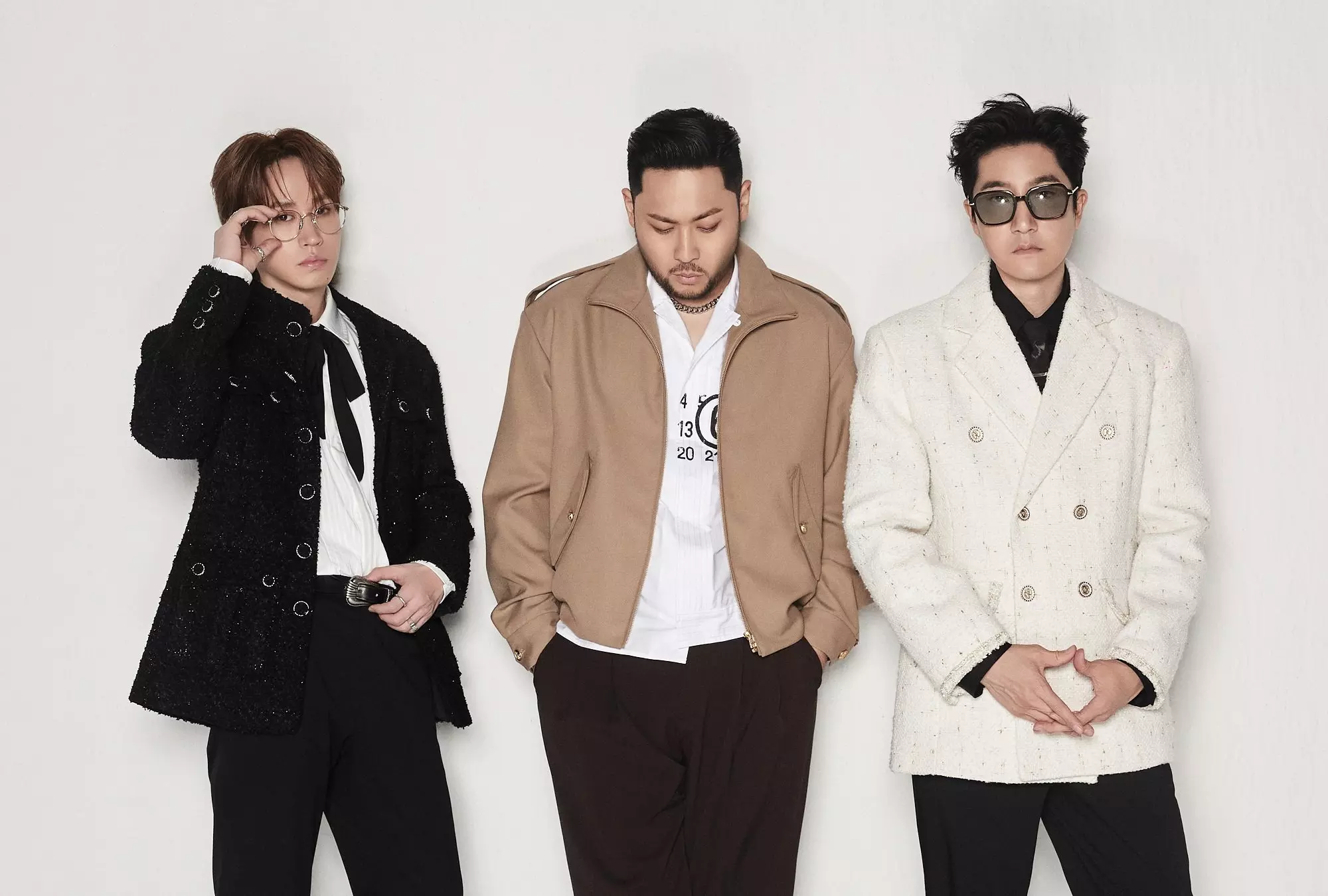
Epik High Are Still Pumped After All These Years: How The Korean Hip-Hop Trio Broke All Their Rules By Going Back To Basics

Watch Kendrick Lamar Win Best Rap Album In 2016
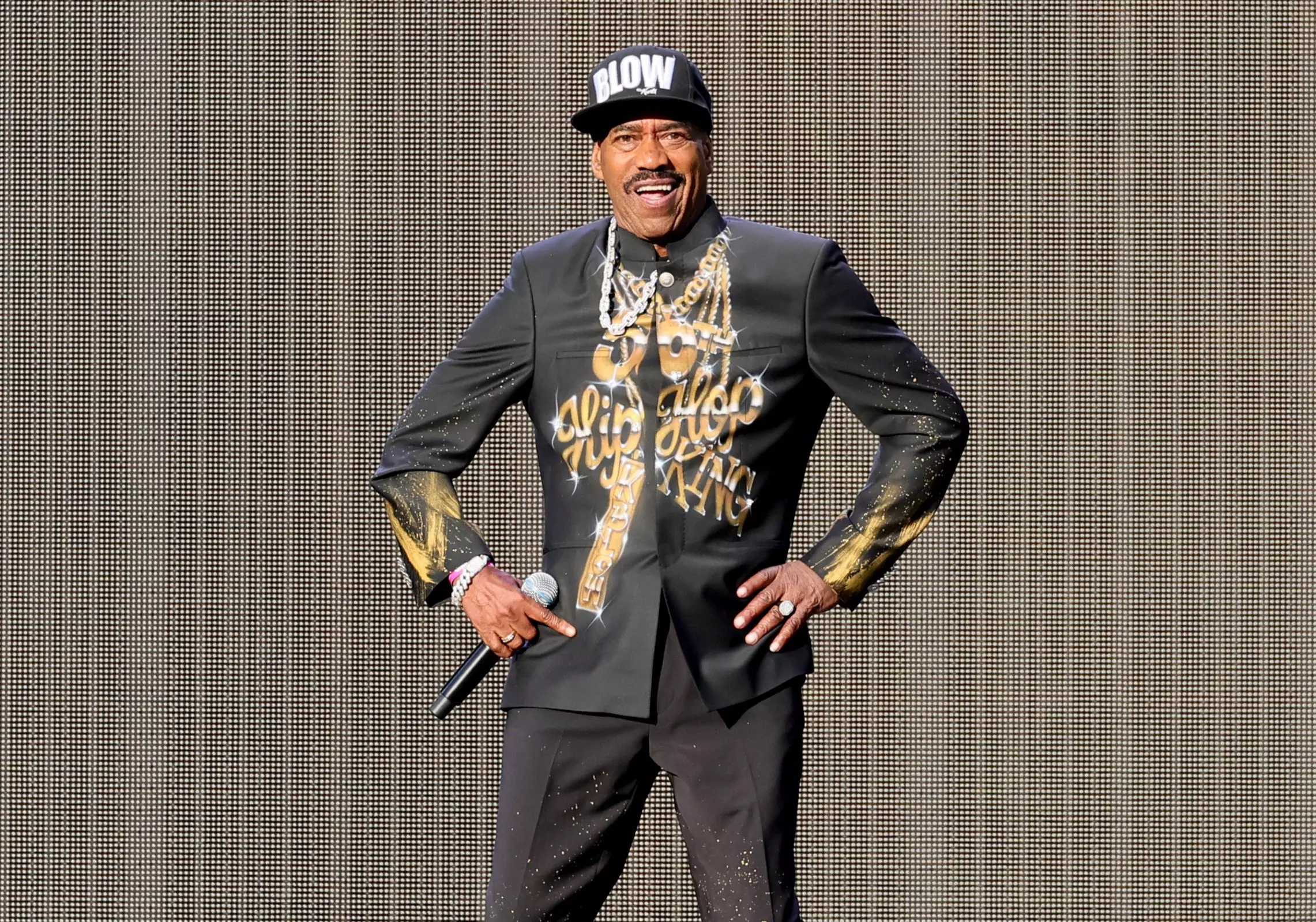
Living Legends: Kurtis Blow On How Hip-Hop Culture Was "Made With Love" & Bringing The Breaks To The Olympics
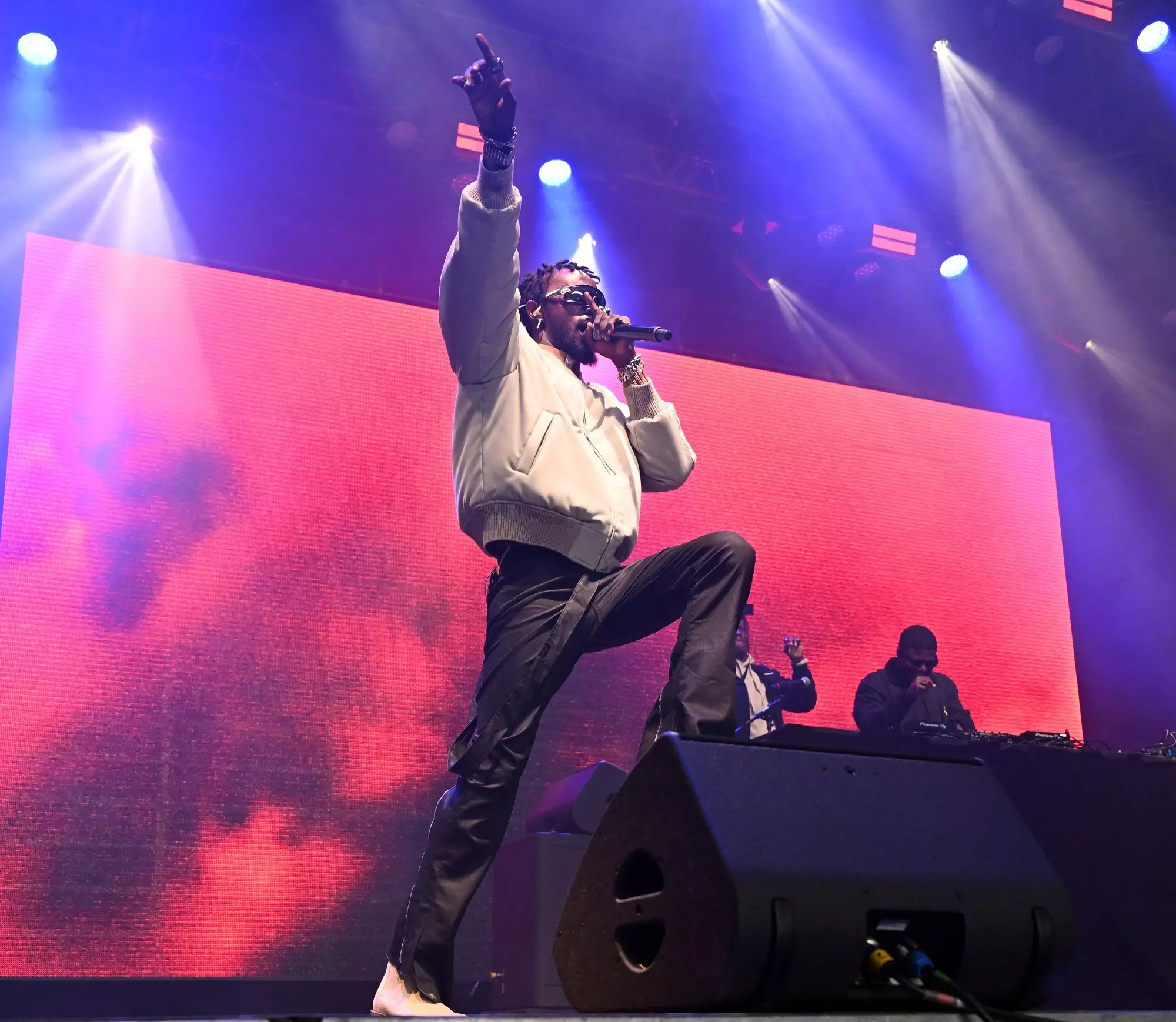
10 Artists Essential To Ghanaian Hiplife: Reggie Rockstone, Sarkodie, Mzbel & More

Ice Spice Is The Drill Queen On 'Y2K!': 5 Takeaways From Her Debut Album
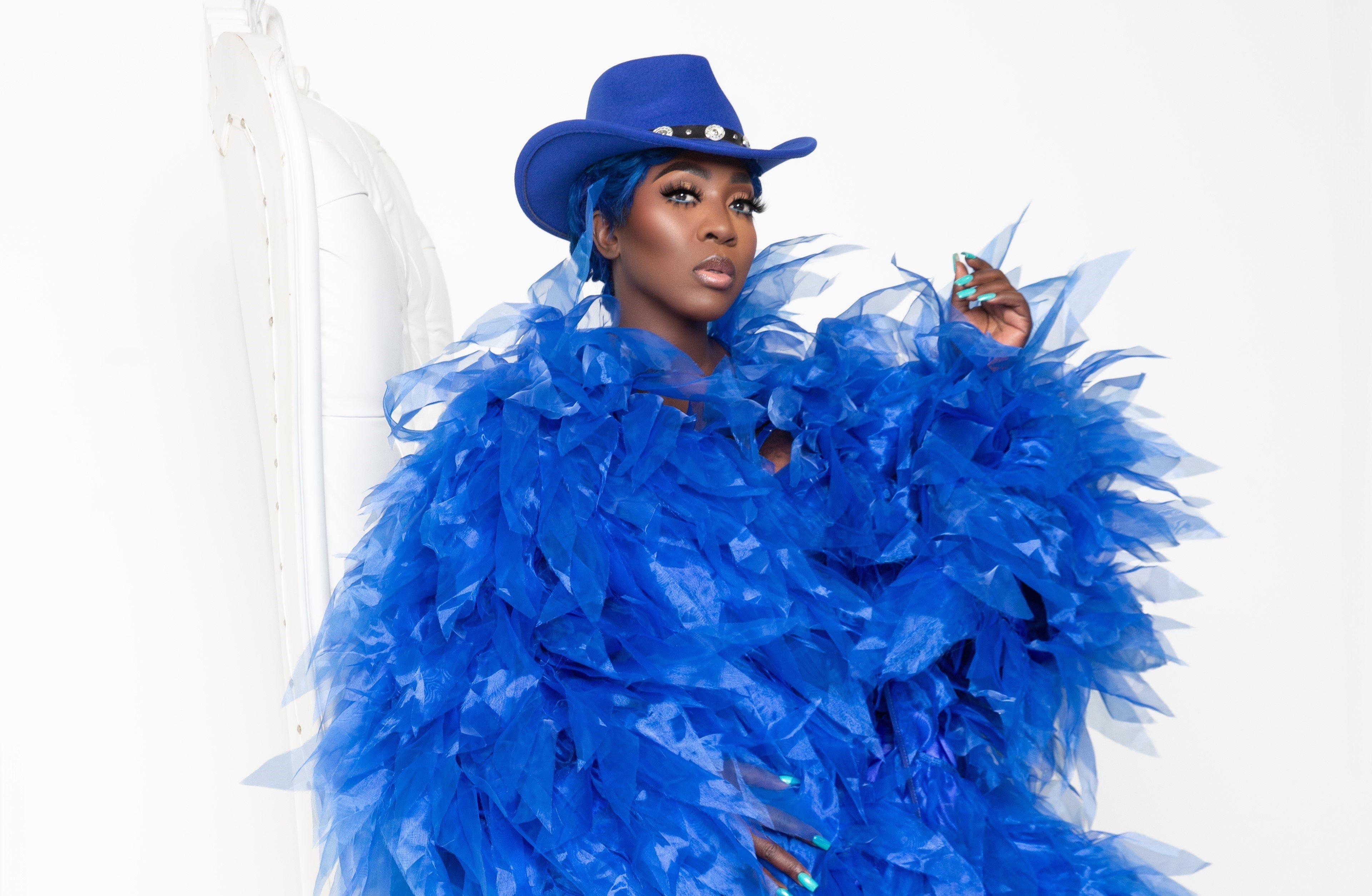
Photo: Mackinley Madhere/Spex Photography
interview
Dancehall Legend Spice Reflects On 'Mirror 25,' Her Near-Death Experience & Owning Her Own Vision
"I’m always going to authentically represent dancehall culture," Spice says of creating her new album, 'Mirror 25.' Beyond her trademark sound, Spice's latest includes forays into Afrobeats, soca, R&B, and country.
GRAMMY-nominated singer Spice has ascended the throne, to be crowned the queen of dancehall reggae for this generation. However, she could also be called dancehall’s first lady due to her unprecedented accomplishments over the course of her 25-year career.
Known for her numerous risqué hit singles, creative videos, bawdy stage shows, social media savvy and bold fashion sense, Spice became the first hardcore female dancehall artist to receive a GRAMMY nomination in the Best Reggae Album category. At the 64th GRAMMY Awards, she received the nod for 10, her 2021 debut album, which includes the hit "Go Down Deh" featuring Shaggy and Sean Paul. Spice is also the first Jamaican artist to be a featured character on an American TV series (VH1’s "Love and Hip Hop Atlanta") and the first Jamaican female dancehall artist to reach 1 billion collective views on YouTube.
Spice is the Founder/CEO of Spice Official Entertainment, through which she will release her third studio album, Mirror 25, on Aug. 9. In another first for a Jamaican artist, she unveiled the album cover on "GMA3."
The album’s 25 tracks include forays into Afrobeats, soca, R&B, country and, of course, hardcore dancehall. On the album’s first single, "2085 Tea," Spice ingeniously adopts the persona of a gossip-mongering granny who’s spilling the "tea" on herself. "I’ve gone through trauma, heartache, pain, betrayal, so I didn’t want this gossip to be about other people’s lives," Spice tells GRAMMY.com of the song. "I wanted it to be about my experiences."
Born Grace Hamilton in Spanish Town, Jamaica, Spice came from very humble beginnings. She grew up singing in the church and developed a love of performing while still in school.
In 2000 Spice made her first appearance on a major Jamaican stage show, Sting, when Ninja Man, one of the greatest, most feared opponents in verbal clashes, spotted Spice’s talent. When Spice was handed the mic, she did not disappoint. A few years later, dancehall star Baby Cham introduced Spice to his mentor, maverick producer Dave Kelly, for whom she recorded her first hit single, 2005’s "Fight Over Man."
In 2009, Spice’s career accelerated with her feature on Vybz Kartel’s "Ramping Shop." With its catchy refrain, raunchy patois lyrics, and the undeniable chemistry between Spice and Kartel, "Ramping Shop" became one of the biggest and most controversial dancehall hits. Jamaica’s Broadcasting Commission issued a directive to halt its play on the island’s airwaves but the ban only increased its popularity; "Ramping Shop" spent 15 weeks on Billboard’s Hot R&B/Hip Hop Songs chart.
Since then, Spice’s has released numerous explicit singles accompanied by imaginative videos including "Sheet," "Needle Eye" and "So Mi Like it" — each of which can be viewed as liberated expressions of female sexuality or "slackness" (vulgarity). However, Spice’s music also addresses topical issues such as sexism, on "Think Like A Man", and corrupt policing on "Po-Po" inspired by Black Lives Matter and featuring an impressive verse from Spice’s teenaged son Nicho. Among Spice’s most impactful songs is "Black Hypocrisy," prompted by a derisive social media comment about Spice’s dark complexion.
Spice has survived poverty, homelessness and in 2022, a health scare that almost brought her remarkable journey to a premature end. Ahead of the release of Mirror 25, which she calls "a raw open diary of her triumphs and tribulations" Spice reflected on her life, career, and spilled a little more tea, with GRAMMY.com.
This interview has been edited for clarity.
Congratulations on your 25th anniversary. Does it feel like 25 years have passed since you started?
It feels like it was just yesterday; I can vividly remember each year as I struggled to make it to this point. I remember in 1999, when Bounty Killer handed me the microphone in my community so I could go onstage and showcase my talent; in 2000 when I did my first major performance on Sting in Jamaica and Ninja Man helped me make a name for myself by calling me onstage; when Baby Cham helped me to get my first hit song, "Fight Over Man," by introducing me to Dave Kelly.
But I’m always reminded of my struggle, it has not been an overnight success. I’ve been through a lot to get to this point; to become a GRAMMY nominated queen of dancehall was not a walk in the park.
Tell me about the songs, the topics that you’ve written about on 'Mirror 25'?
As the queen of dancehall, I want to make sure that I represent the genre as authentically as possible, with that hardcore dancehall sound, so the listener will know that’s a girl from Jamaica. On tracks [such as "Gangster" with Chronic Law, featuring Ireland Boss] you can hear the sound system, the bassline, you can almost smell the ackee and saltfish and jerk chicken.
I have a song that could go on the R&B chart. I have a song about what happened in my past relationship ["Ex Boyfriend"], which will be very relatable to women because that song asks, why do men do the things that they do to women? They can’t live without us but treat us in a manner that is degrading sometimes.
There are dancing songs [and] collaborations with Jamaican women; we’re singing about our power as women. My fan base has grown tremendously so there’s an Afrobeats collaboration and we are going into the Indian market. I give all praise to Him after my near-death experience, so there’s a little bit of worship, too.
Towards the end of 2022 we heard rumors that you weren’t well and possibly were in a coma. Please explain what happened.
I was in the Dominican Republic, I had breast augmentation. While I was there my hernia erupted and sent my body into a sepsis shock.
I felt like I died because of what I went through. At one point, I had an out of body experience. I saw pictures of the sepsis that had eaten away at my skin; I shared the pictures with my fans. I was literally laying there with an open stomach, without skin. It was a traumatic experience but through the grace of God, somehow, he brought me back to normal.
Did you fear that you wouldn’t be able to resume your career?
Oh, absolutely. This happened in November 2022 and for the rest of that year, and throughout 2023, I was in and out of the hospital. The sepsis also affected some of my organs. I did surgery to fix another hernia that they caused when they opened my chest up to save my life. By the grace of God, I completed my final surgery, and the hernia was repaired.
Watching you perform on stage now, you twerk, "wine up your waist,"do splits. If we didn’t know what had happened, we would never guess you have been through such an ordeal.
God is good, I give Him all the praise.
The first single from 'Mirror 25,' "2085 Tea" is so cleverly written and delivered as you get your jabs in about certain people including your children’s father, "Love and Hip-Hop Atlanta" castmates and your back up dancer who allegedly had an affair with your now ex-boyfriend. How did the song come together?
It started when I figured out what I wanted to call my album. When I look in the mirror, I do a lot of self-reflection, thinking about my past, the things I’ve managed to overcome, and I wondered, what will I be doing when I get older? So, the album’s name, Mirror 25 birthed the idea of putting myself in 2085 and talking about what I’ve been through. And if I’m in the future, obviously, I’m going to be an older person, so I started talking in my granny voice and I thought, oh my God, that’s an idea.
I love the way you are styled for your portrayal of a granny in the video: gray wig, pearls, long skirt, and the vintage TV set, the room’s décor looks like a grandmother’s home. Were all of the things we see in the video your idea?
The ideas are all me, but I have a team of people that execute them. I called my makeup artist, Nosworthy Creations and asked, "How can I make my face look more wrinkled, like an older person?" She said "you can use a prosthetic, they do that in movies." So she reached out to someone who works on movie sets and they told her what to put on my face; that process took six hours to apply then dry on my face to make it appear wrinkled.
JD Production and [director] Spex found the old TV and the place that looked like an older person’s home. Empress the Glam did my hair although I’m mad at her because I wanted a little blue in the gray hair because even when I’m old, I’m going to be wearing my blue. [Laughs.] I was so happy with the outcome, but it was a very long process.
Busta Rhymes is featured on the country/dancehall/hip-hop track "Round Round." In June 2023, the BET Awards celebrated hip-hop's 50th and honored Busta; he invited you to perform as part of the tribute segment. What was that experience like?
I was excited to celebrate in that moment, it’s one of my greatest memories with Busta and within that segment with other Caribbean artists, I made sure I represented the Caribbean in a way that’s true to myself. Because it was BET, some people thought that I shouldn’t [dance] in the style that I usually do.
I’m not sure if people understand that before you appear on TV, your song and performance have to be approved. It’s not like Busta called me up from the audience; anything I did on the stage that night was rehearsed, approved. There were mixed reactions to my performance, like oh my God, why did she dance like that? Because that’s the way I dance and as the queen of dancehall, I’m always going to authentically represent dancehall culture.
Tell me about recording "Round Round."
"Round Round" is a country western dancehall blend. [Jamaican producer] YowLevite, who put the riddim together said, "There’s too much going on, the riddim sounds like country, it sounds like dancehall." I said, "Give me the riddim, I’ll know what to do with it." I stayed true to myself as a dancehall artist, but I sound a little country, too. It’s unique and I thought, who else is that unique to bring the elements of hip-hop, country and dancehall together on one song? Busta was the only person who came to mind.
I recorded my part, sent it to him, and he said "Boss lady, it’s a big tune"; that floored me because I didn’t expect that response, he loved the track. Working with Busta, an icon, is humbling to my spirit because he is such a sweetheart, always encouraging, always pushing our Jamaican culture. I’m very honored to collaborate with him on "Round Round." People want to dance to it, it makes people happy and that makes it more fun for me.
How do you handle criticism like what you received about your dancing on BET, the disparaging comments on social media, even the bashing from other artists?
I call my fans "besties" because I make them feel like they are my best friends; my besties say I don’t deal well with criticism, I need to leave certain things alone. But sometimes when these criticisms get too much, I will go live and say, "Come besties, let’s talk about it."
I address many things because if you leave many things, people will believe many things. If someone spreads a rumor about me, or if something comes out that I need to clear up, I will clear it up. It’s been 25 years, like I said, it wasn’t a walk in the park to reach here so I’m not going to sit back and let anybody tarnish my brand.
Read more:The Women Essential To Reggae And Dancehall
How has dancehall changed in the 25 years you’ve been doing it?
Dancehall has evolved drastically: the creative process has changed, and new sounds were born. More people are discovering the genre on a larger scale. More artists, especially females, have a voice now.
Technology has modernized our releases, whereas in the past, I used to print CDs, walk around and hand them out to taxi and bus drivers to promote my music. Today, I’m on TikTok and Instagram with the touch of a button.
How have you changed as an artist?
My fans also know me as an entrepreneur, I’ve been a businesswoman for many years. I have my clothing company, Gracie Noir, which is leisure wear, specializing in track suits for travel. I recently released a book, The Navigational Yearly Planner; I’m trying to help my fans become more organized, more business savvy, learn financial literacy. That has helped me with my record label where I have to write out everything that has to be done when releasing music.
I’ve also grown more spiritually, professionally, mentally. I’m a better person in a better state of mind, I have more knowledge on the business of music. I was stuck in a contract with VP Records for 10 of my 25 years, they didn’t release my album (hence, her debut album’s title, 10). My [2018] Captured mixtape addresses that, because I felt like I was captured.
I’ve learned so much about publishing, releasing music, getting it out to the DSPs. That’s why I’m so excited about Mirror 25 because I’m releasing it on my own label, Spice Official Entertainment.
Latest News & Exclusive Videos
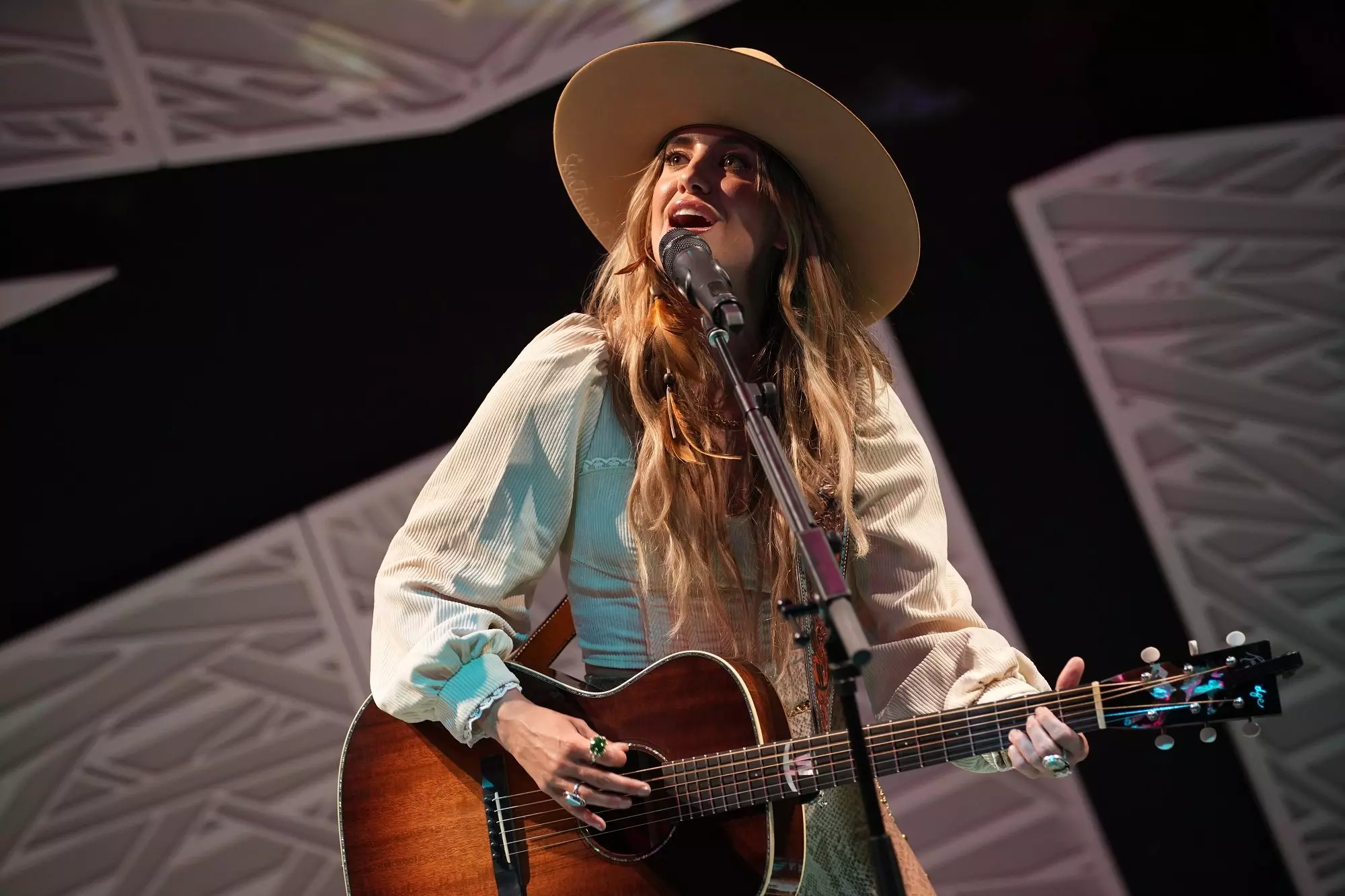
20 Live Events At The GRAMMY Museum This September: Experience Orville Peck, Kate Hudson, Tierra Whack & More

Watch Wunderhorse Perform "July"

Zedd's Road To 'Telos': How Creating For Himself & Disregarding Commercial Appeal Led To An Evolutionary New Album
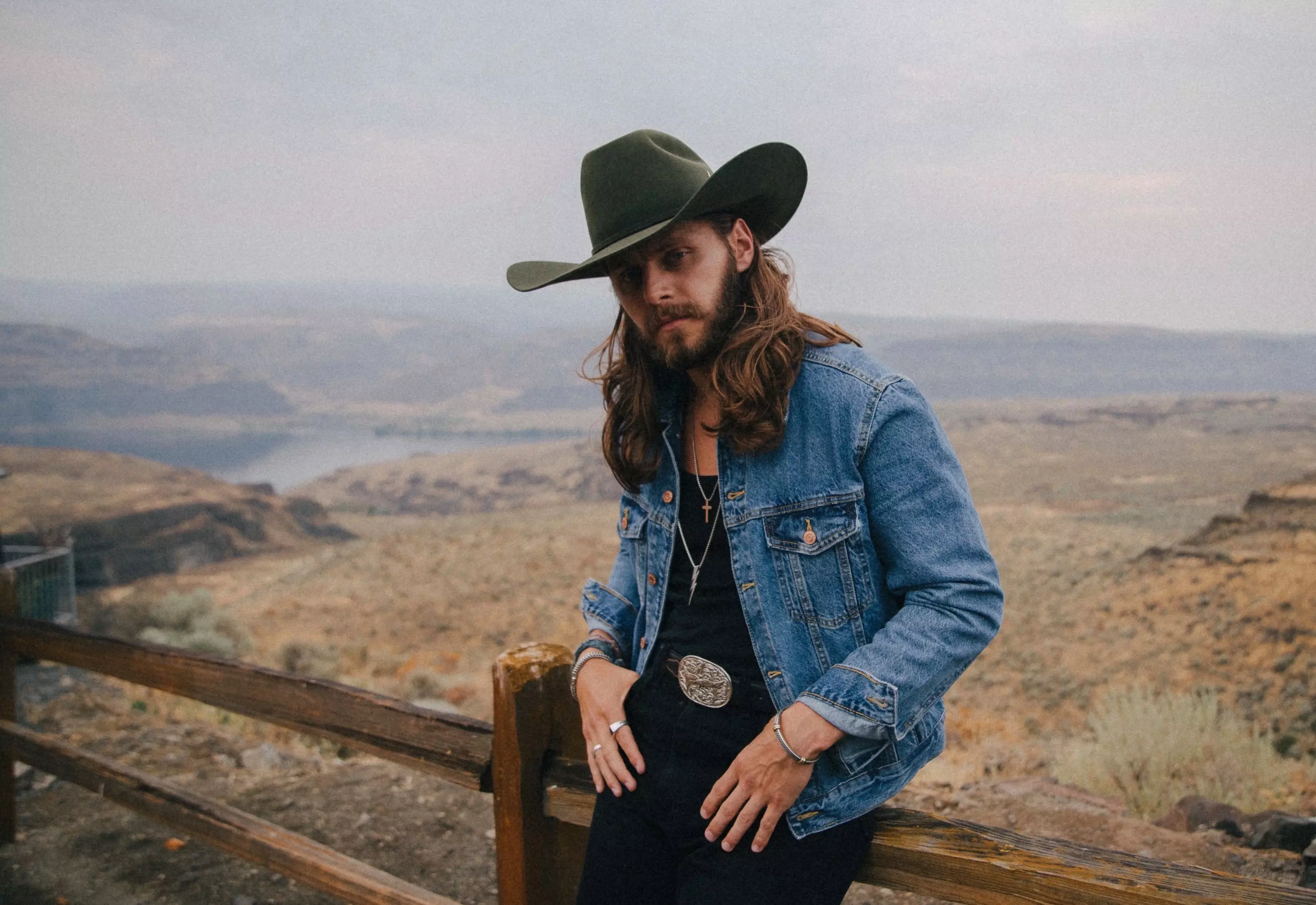
Warren Zeiders' Big Year: The Country Star Recounts His Journey From 'Pretty Little Poison' To 'Relapse'

Watch MonoNeon Share His Bass
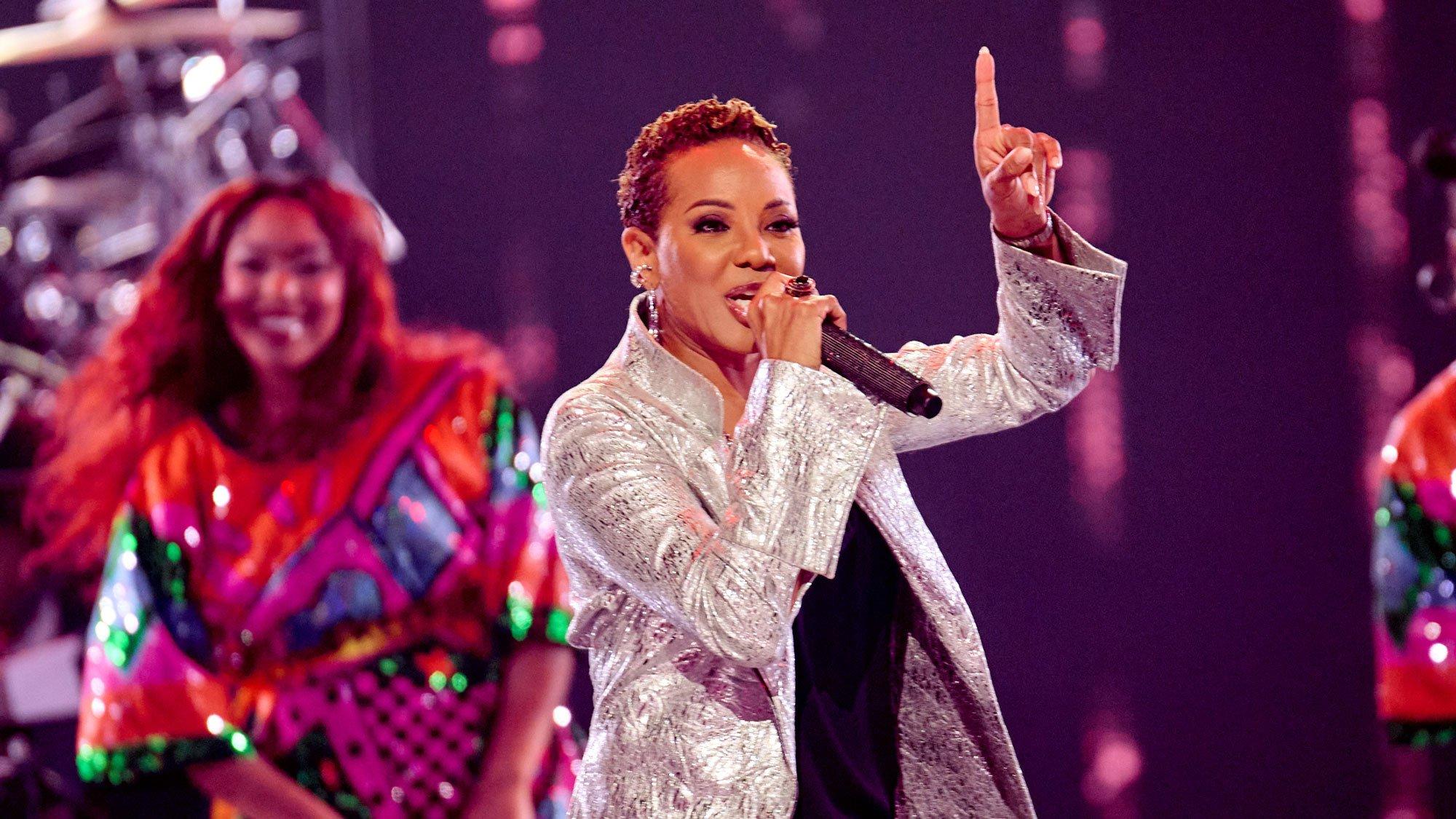
Photo: Derek White/Getty Images
interview
Living Legends: MC Lyte On Her New Album '1 of 1,' Building An Empire & Being The Guiding Light
"What I'm saying is real. And it's important," Lyte tells GRAMMY.com on her groundbreaking work and new release, '1 of 1,' featuring Stevie Wonder, Queen Latifah, KRS-ONE, and more. "It's just real talk, and I think we haven't had that for some time."
MC Lyte is hip-hop's original female emcee. Born in Brooklyn, the multi-hyphenate rapper, actor, entrepreneur, and fearless advocate for women is a pioneering force. Nine years since her last album, Lyte is finally ready to release her ninth studio album, 1 of 1, on Aug. 9.
Lyte is celebrated not only for her conscious lyrical prowess, but also for shattering gender barriers. At 16, she released her debut single, "I Cram to Understand U (Sam)," making a poignant statement about addiction in the '80s. In 1988, she unleashed her debut album, Lyte as a Rock, becoming the first solo female rapper to release a full album.
"[Early hip-hop] was so much freedom that we were able to really make a difference," Lyte tells GRAMMY.com. "That's myself with Heavy D and KRS-One and Rakim and all of the greats having the opportunity to use their voices the way that they wanted to use it."
Her 1993 release, Ain't No Other, earned her (and all female solo rappers) two firsts: the first GRAMMY nomination for "Ruffneck," and the first song to be certified gold. In 1996, she struck gold again with Bad As I Wanna B, featuring "Keep On, Keepin' On" with Xscape. Lyte's ability to illuminate powerhouse female voices in music shines through her collaborations with Janet Jackson on "You Want This" and Brandy's remix of "I Wanna Be Down" with Yo-Yo and Queen Latifah.
Earlier this year, she released two singles ahead of 1 of 1: "Woman," featuring Salt of Salt-N-Pepa, Big Daddy Kane, and Raheem DeVaughn in support of Women's History Month, and "King King" featuring Queen Latifah. Other legends on the new work include Stevie Wonder, KRS-One, Common, Q-Tip, Mary Mary, and Muni Long.
Beyond music, she is also a voiceover artist, actress, and active mentor through her organization, Sunni Gyrl, which focuses on artist development and creative services, and co-founded the Hip Hop Sisters Foundation, to promote positive images of diversity.
Learn more: 9 Teen Girls Who Built Hip-Hop: Roxanne Shante, J.J. Fadd, Angie Martinez & More
Lyte has been honored with a special salute at the 2024 Black Music Honors, received the I Am Hip Hop Lifetime Achievement Award at the 2013 BET Hip Hop Awards, and Harvard University's W. E. B. Du Bois Medal. At the Recording Academy, she has served in multiple roles, including President, Trustee, and Governor of the Los Angeles Chapter.
"I think we've sort of permeated every space of entertainment you can ever imagine," Lyte says of the culture in hip-hop. "Never could I have imagined years ago that we'd be here."
Over Zoom from the set location where she plays Detective Monroe in the BET original series "Angel," GRAMMY.com caught up with MC Lyte to discuss the new album, the source of her limitless passion, and her advice for the next generation.
This interview has been edited for length and clarity.
It's been nine years since you released your last album, Legend. What can fans expect from 1 of 1?
It's executive produced by Warryn Campbell, who by far has won his share of GRAMMYs through his own work and through production for others. But just so happens that he's also my pastor.
When we set out on this mission, I knew that I would feel comfortable enough to stay in the new lane that I have created for myself. It's interesting to now be in this space and not only navigate what's new, but also be at the forefront of what is my career. You know, starting at 16, 17, you're doing everything that everyone else wants you to do. You're standing that way. You're moving in that way. You're wearing this.
But this album, because I'm in a different, spiritual place, it felt good to be in collaboration with Warryn Campbell because there was nothing on it [trying] to be something that I was; something that he sees me being. And I think a lot of times, at least in my experience, producers have said, "Oh, we need to do something that sounded like that," or "You need to attack the mic like you did in that song." It's just a bunch of references made to older things.
So, 1 of 1, to me, is sort of a second coming of age. Where I'm able to stay in my truth and also give inspiration to others who are at a point where it feels like they can't get beyond the ridge.
**Your new single "Woman" was released during Women's History Month and "King King" was recently released with Queen Latifah. Who else shows up on this album?**
I made a lot of calls for this album. A lot of people answered the calls. So we've got some really great talent on the record, which I'm really excited about. We've got Common and Stevie Wonder and Q-Tip.
Our leading charge is a song called "Thank You," and that's with Mary Mary and Muni Long. And I just think, for all of the times where I didn't make the call, making a call at this time feels great to have people answer like, "Yes, I wanna do it." We've hit a space with people wanting to engage without, you know, [dollar] signs.
You've always been such an outspoken proponent of celebrating and sharing the experience of womanhood through your music — why is that so important to you?
I do believe having the opportunity to release music shouldn't be taken for granted. And so with that notion, I always, I guess, even from "I Cram to Understand U," my very first song, I always wanted to record with a purpose.
We recorded ["Woman"] before the pandemic, actually. And we knew that it needed to come out for Women's History Month. So if we missed Women's History Month, we had to wait for the next year. That's the type of focus that we wanted to have on that particular record. I think we were able to achieve it, and it's also one of those songs that we don't hear a lot of these days.
To have a song that celebrates women simply — with a wonderful hook by Raheem Devaughn — but then also seeing what's important to the two women that are in the song, myself and Salt, the perspective that we're coming from is in alignment with the way that a lot of women think. So we wind up speaking not just to them, but for them. Then to have Big Daddy Kane say all that he adores about women is just icing on the cake.
Celebrating 50 Years of Hip-Hop
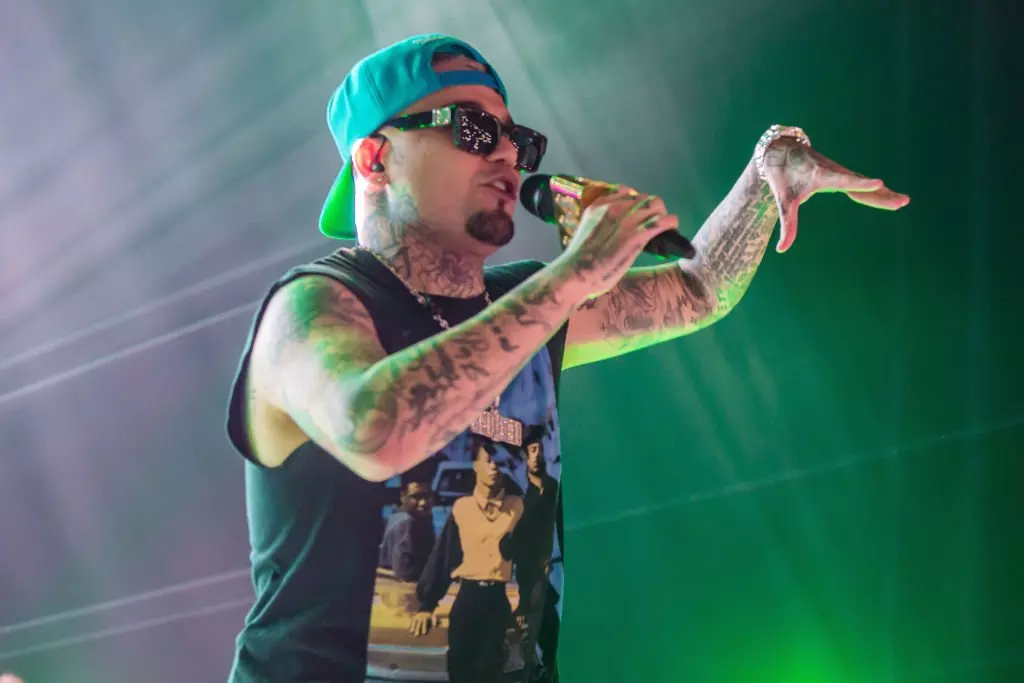
8 Latinx Rappers To Know: Eladio Carrion, Young Miko, Akapellah & More
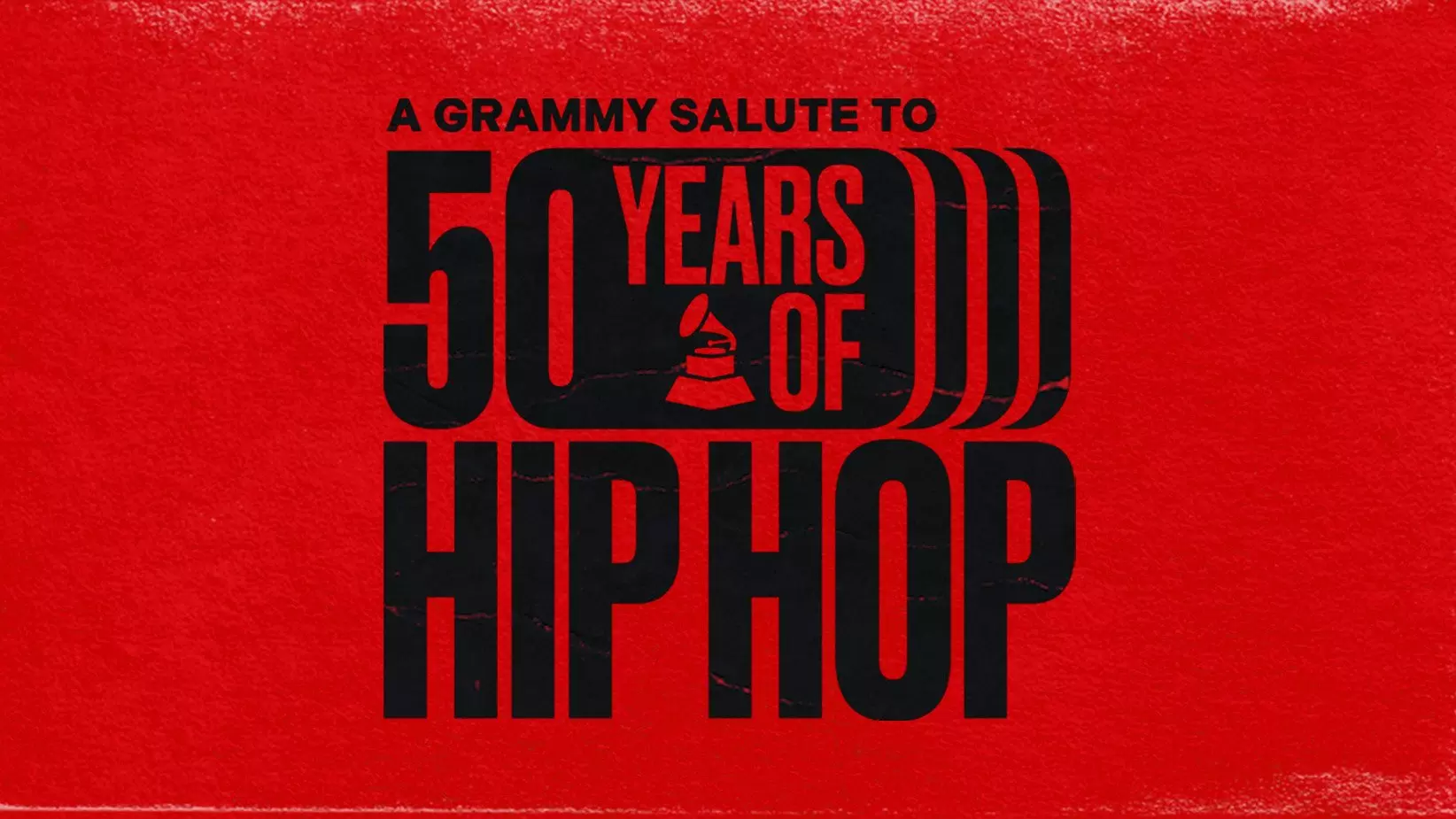
Additional Performers Added To "A GRAMMY Salute to 50 Years of Hip-Hop" Live Concert Special: 2 Chainz, T.I., Gunna, Too $hort, Latto, E-40, Big Daddy Kane, GloRilla, Three 6 Mafia & More Confirmed
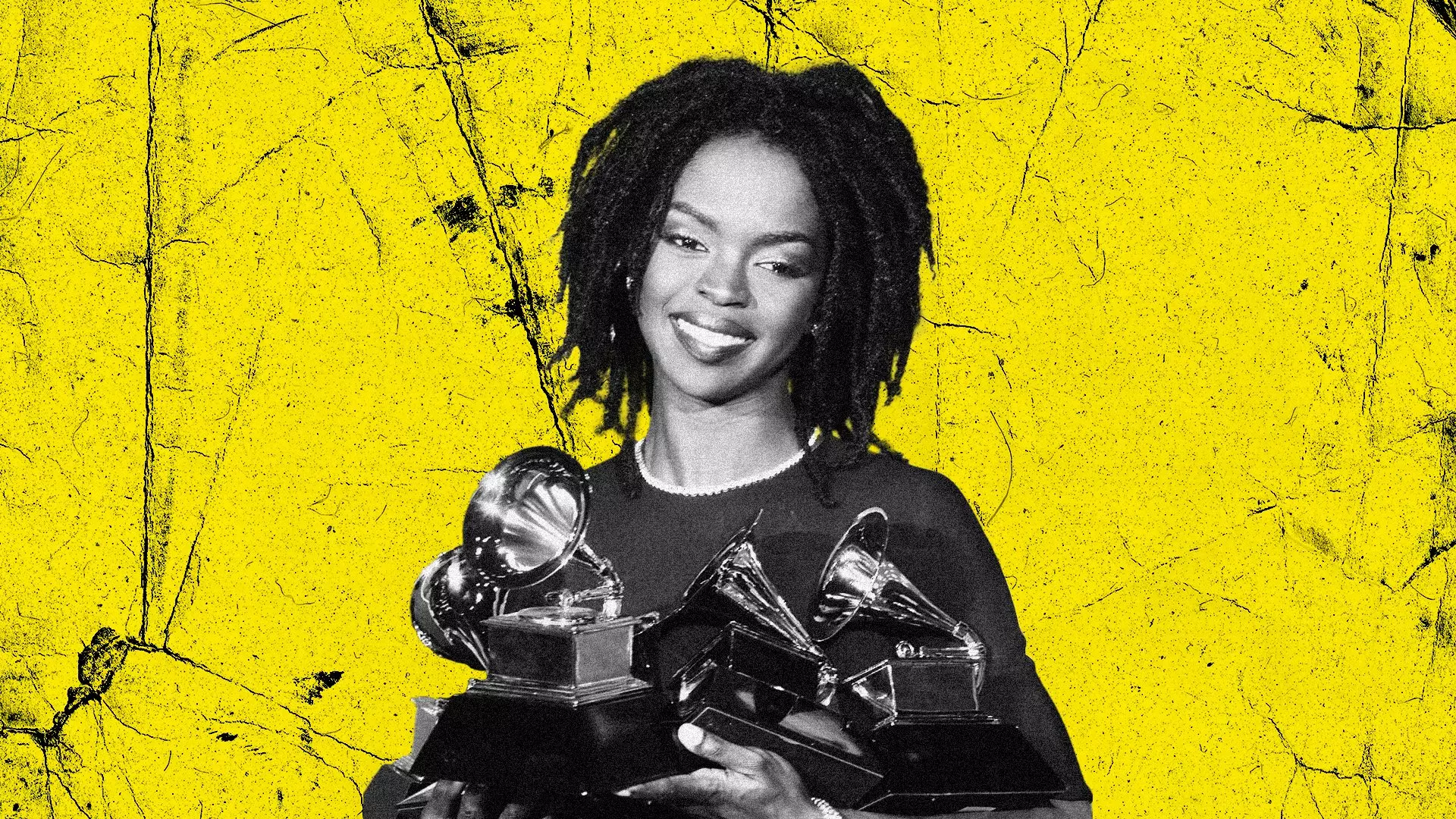
GRAMMY Rewind: Watch Lauryn Hill Win Best New Artist & Quote Scripture In 1999
To bring it all the way up to now to "King King," which wasn't really planned to do as let's do a song for women, and now let's do a song for men. It didn't go like that. And when I tell you that "King King" and "Thank You" I wrote in bed at about 1 o'clock in the morning — it was just God downloading the lyrics so quickly. I couldn't even believe it. As I was writing it, I was like, oh my goodness. It's gonna stop. It won't stop.
Having this kind of conviction for your testimony speaks to the spiritual nature of your music. How else does that influence your work?
It brings people together. I think it just falls to me in a space of responsibility. It's not anything that's separate from me. Often I'll let the music lead me. And if I listen to a track, and it's like, oh, this is great. But it doesn't incite power or purpose, I'll put that track to the side. When I'm ready to just rap about nothing or rap about how dope I am, I'll pick that up. But when I'm looking for something that I want a message attached to it, the music literally will lead me into the place where I need to be open to whatever God puts on my heart.
So much of what is said in "Woman" is who I am. And same thing with "King King," it's what I believe. It's the times when I see guys in huge celebrations when they're winning, you know, trophies for basketball, and it is just like one of the most vulnerable moments to see them as they celebrate with their friends. You can see the pain and the anguish and the triumph and the tears. And it just brings chills all over my body.
To see that from these men that usually have to have these hard faces with this stance that's so mighty and strong. That's how I feel about, specifically men of color. No no one knows him. And so I wanted to celebrate them and then also their walk towards responsibility and not shying away from what it means to be in a long lasting, loving relationship.
What about your relationships with men in hip-hop? I know you and Rakim just performed together on the same stage at Rondos Day in St. Paul, Minnesota.
The interesting thing about Rakim, he's probably one of the emcees I know the least about, on a personal level. But yet, whenever we're in one another's company, we have such a high level of admiration and adoration for one another. It feels like we know one another really well. I really give honor to that. However, there are others like Biz Markie and Heavy D and Chuck D and KRS-ONE. These are my big brothers in the business.
Those are people that would just call me and say, "What is going on? How are you feeling?" Or they'll see some performance… That's Big Daddy Kane. He's gonna tell me, "I like what you was wearing on there," or "I like the energy." It's all of these moments where I am the little sister. You know, they've seen me grow up in this business. And many times over, they've assisted in some capacity.
It's so funny how many layers, relationships exist within hip-hop, and you may not know it because you don't see it. But we know that, you know, that connection is real.
Has your songwriting or creative process evolved through the years?
Yeah. Absolutely. There's a few things that have happened. One, when you're in the spell of writing, stay there. When I was younger…you leave a song open ended to have to try to find the same sentiment days later. And it may not be there. And so [I've learned] to stay still during the writing process. And then I've also learned much more melody than usual.
Coming from New York, we have a way of wanting to put all the words that we can find to show how dope and how advanced we are as emcees. And I think for me to be able to slow down on this record and find melody and nuances that weren't as important to me before, I think that it really benefited me with this record, and that's where I will give the credit to Warryn to push me.
I remember long ago, I was talking to Nelly, and I was about to embark upon a new album. It might have been 14 years ago. But what Nelly began to explain to me, is that "I lived in New York for a summer, you guys moved so quickly. It's no wonder you all rap like that." He said, "Where we're from, we're driving to our destinations." I think that was brought to the forefront for me here with this album. I'm not in a rush. I don't need a lot of tricks with what it is that I'm saying because what I'm saying is real. And it's important. I don't need a lot of influence. You know, I'm simply speaking. It's just real talk, and I think we haven't had that for some time.
You live in Los Angeles now, but do you get back to New York?
I've lived in Brooklyn. I've lived in Manhattan. I've lived in Queens, and I've lived in Jersey. And then I came to California. I've been in California for some time now. But I go back and forth often enough that I don't really feel like I'm missing anything. I'm going back this first week of August, which is pretty exciting, doing a lot of press for the album, and then also, performing at Wingate Park, which is where I attended high school.
**Speaking of, where are we going to see MC Lyte performing soon?**
I'm on the Queens of R&B tour. So we did Atlanta, Charlotte, New York, and then Madison Square Garden. There's going to be a show [in Los Angeles] at the [Kia] Forum. Cincinnati Music Festival, I'm performing out there, and I'm doing "King King," bringing them, you know, some new music at the same time, which is pretty exciting.
You also have a full plate with your other endeavors: acting, voice overs, mentorship. Do you get fuel from these different activities to inspire the other work you do?
Absolutely. I'm actually on set now. I played detective Monroe in a [BET] show called "Angel." I'm on set all week with this.
We have a full fledged production and management company [Sunni Gyrl]. Right now, our premier talent is Van Van, who is an internet sensation turned actor, recording artist. She's actually 5; she just released her first album. She also plays a character called Vancy with Snoop Dogg on Doggyland.
We've got other talent, gospel singers, Dave Hollister. And then production wise, we had a sitcom that I wrote ["Partners in Crime"], and we did some really great things with that with AMC. And now we've got a few deals around town with different projects, TV shows, cooking shows, competitive shows. I just signed on to be music supervisor for a short film called The Memo, by a new company called A Seed Productions and it's pretty powerful. I'm looking forward to all that comes from that.
But, yeah, each day it's a different hat. It makes it completely exciting.
What drives you to continue to commit yourself to mentorship and fostering new talent in the next generation through all that you're doing through Sunni Gyrl?
It just feels it feels like the right thing to do. I don't know any other way. And it's crazy because I meet people all the time that had met me at a younger age. And they say to me, "You said this to me and that really mattered at that time. I wanna tell you what it did for me."
My close friends would call me grandma because I'm always imparting something that can be used later — and I don't even know that I'm really doing it. I'm just talking. It's just the idea of never being afraid to share your weaknesses and your shortcomings. Just being an open book to help someone else get to the next step, the next phase.
There have been some autobiographies that I've read throughout time, and you know the ones that are just ink on the page. And you know the ones that had to see past their tears to actually write it. And that alone is what brings people closer to you. It's the human bond. And if you're willing to just be that open book, so many people can learn from what it is that you're saying. And it may not even be what you're saying. It could be the cornerstone for them to go get the knowledge or, you know, educate themselves about something completely different. I think as an emcee, I have to really be in tune with the power that I have and that words are powerful and have meaning. And so why not use them, responsibly and purposefully?
Can you tell me a bit more about the importance of listening? And have you always felt like a good listener?
No. Even now, it's still a struggle with me. You know, acting is all about listening.
I think a lot of times [what] we do in life is we take the part that incites some sort of reaction, and then we don't even pay attention to what was said before or after. For me, it's important that I slow down in order to listen. Because first off, I'm quick. And so are a lot of other people.
I've tasked myself each and every day with slowing down enough to listen.
Listening during acting has taught me how to listen in life. And that not everything said deserves a response or requires a response. It's the admittance of not knowing that's humbling.
How do you find the energy? What is the source of this well that you're continually pouring from?
The source: God. That's all I can attribute it to, because it's certainly not me. I just allow myself to be used as the vessel to get the thing done. It's a part of the dream. So while I'm doing it, I'm just grateful like, wow. I asked for this. Oh, yeah. And I asked for that. And so I only ask that God give me the wherewithal to handle it as it comes and also to say no to the things that I just don't have time to do and don't fulfill the ultimate goal.
What artists today are you excited about or you're listening to?
I love what Common and Pete Rock are doing right now. Rapsody, Tierra Whack. I listen to a lot of people in terms of Kendrick, in terms of Drake. And, I listen to Tems.
I just hope that the new artists coming in today find their strength at an earlier turn than a lot of us.
A lot of times, I believe artists understand who they are much more when they've gone out into the world and understand how blessed they are to even be in the position to speak their minds. There are plenty of places where not just women, but anyone who wants to speak out against the system, or disagree with a certain politic, or a political stance, or political agenda [cannot].
What other advice would you give a younger you or artists coming up now?
Surround yourself with people that have your best interest. And when you're young, you don't really know who those people are. But I would just say what you see, believe it. And you can see things much better than what you're told. Because people lie. Unfortunately, if everybody told the truth, then I wouldn't have to advise you to watch people show you much better than they tell you anything.
There's always room for improvement and to stay focused on what it is that you started out with. Because many times, there will be distractions. There will be distractions along the way, and you wanna make sure that you reach the intended goal. And know what you're in it for.
More Rap News

Epik High Are Still Pumped After All These Years: How The Korean Hip-Hop Trio Broke All Their Rules By Going Back To Basics

Watch Kendrick Lamar Win Best Rap Album In 2016

Living Legends: Kurtis Blow On How Hip-Hop Culture Was "Made With Love" & Bringing The Breaks To The Olympics

10 Artists Essential To Ghanaian Hiplife: Reggie Rockstone, Sarkodie, Mzbel & More

Ice Spice Is The Drill Queen On 'Y2K!': 5 Takeaways From Her Debut Album
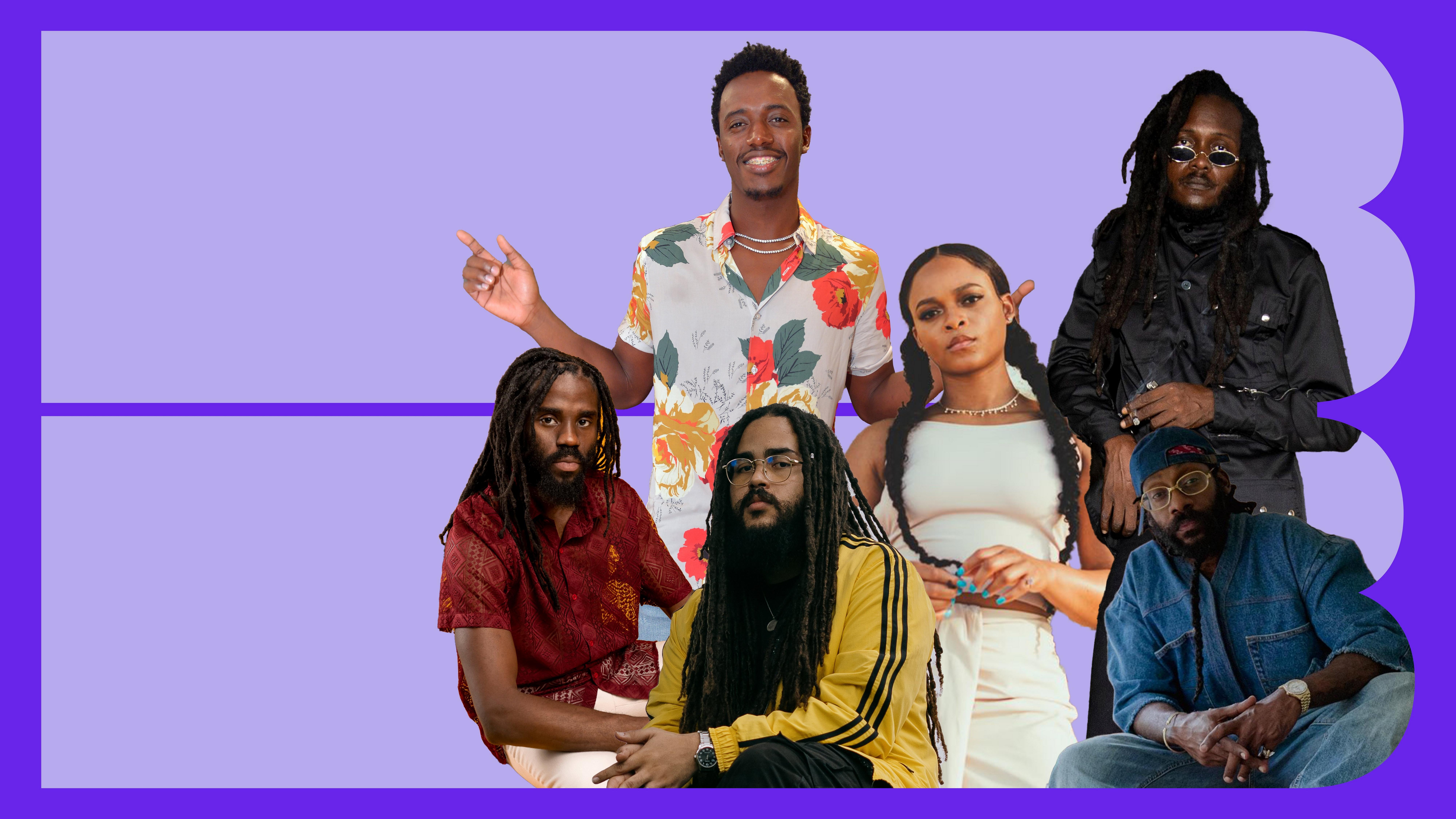
Photos: Courtesy of the artist; Johnny Louis/Getty Images; Courtesy of the artist; Yannick Reid; Horace Freeman; Courtesy of the artist
list
10 Artists Shaping Contemporary Reggae: Samory I, Lila Iké, Iotosh & Others
In honor of Caribbean American Heritage Month, meet 10 artists who are shaping the sound of contemporary reggae. From veterans who are hitting great strides, to promising newcomers, these acts showcase reggae's wide appeal.
The result of audacious experimentation by studio musicians and producers, reggae originated in Jamaica circa 1968 in Kingston, Jamaica. Along with its various subgenres of lovers rock, roots, dub and dancehall, reggae has influenced many music forms and found adoring audiences all over the world.
An authentic expression of the singers and musicians’ surroundings and experiences, reggae evolved from its 1960s forerunners, ska and rocksteady, shaped by contemporary influences such as American jazz and R&B, and mento, Jamaican folk music. Likewise, today’s reggae music makers draw from genres such as hip-hop (especially its trap strain) to create a generationally distinctive sound that still remains tethered to Jamaica's musical history.
In the 2020s, the Best Reggae Album GRAMMY winners reflect the diverse musical palette that comprises contemporary reggae. EDM influences and reggaeton (a genre built upon digitized dancehall reggae riddims) remixes dominate the 2024 winner Julian Marley and Antaeus' Colors of Royal. The award’s 2023 recipient — Kabaka Pyramid's The Kalling, produced by Damian and Stephen Marley — intertwines traditional roots reggae with Kabaka’s love of hip-hop. The late, great Toots Hibbert was posthumously awarded the 2021 GRAMMY for Time Tough, a hard rocking, R&B influenced gem that captured Toots’ soulful exuberance. In 2020 Koffee became the youngest and first female awardee in the category for Rapture, which features the most experimental soundscapes among this decade’s winners. Ironically, the most traditional approach to reggae is heard on American reggae band SOJA’s 2022 winner, Beauty in the Silence.
Read more: Lighters Up! 10 Essential Reggae Hip-Hop Fusions
In honor of Caribbean American Heritage Month, which was officially designated by a Presidential proclamation in June 2006, here are 10 Jamaican artists who are shaping contemporary reggae. Some are veterans who are currently hitting the greatest strides of their professional lives, others are newcomers at the threshold of extremely promising careers. All are committed to their craft and upholding reggae, even if their music ocassionally sounds unlike the reggae of a generation ago.
Kumar Bent (and the Original Fyah)
In the mid 2010s, Jamaican band Raging Fyah had a significant impact on the American reggae circuit, with their burnished, inspirational roots reggae brand as heard on such songs as "Nah Look Back" and "Judgement Day." They toured the U.S. with American reggae outfits including Stick Figure, Iration and Tribal Seeds, and supported Ali Campbell’s version of UB40 in the UK. Raging Fyah’s album Everlasting was nominated for a 2017 Best Reggae Album GRAMMY.
The following year, charismatic lead singer and principal songwriter Kumar Bent (along with guitarist Courtland "Gizmo" White, who passed away in 2023) left due to differences with their bandmates.
In 2023 Kumar teamed up with Raging Fyah alumni, drummer Anthony Watson, keyboardist Demar Gayle and backing vocalist/engineer Mahlon Moving to create The Original Fyah. In February they performed at the band’s annual Wickie Wackie festival in Jamaica and they’ve recorded an album due for upcoming release (Demar has since moved on to other projects.)
Kumar, 35, a classically trained pianist, has recorded two solo albums, including Tales of Reality with Swiss studio band 18th Parallel; they’ll tour Europe together in October. Kumar’s acoustic guitar sets have opened several dates for stalwart Jamaican band Third World this year.
Each of his musical endeavors are focused on bolstering Jamaica’s signature rhythm.
"Reggae from the 1970s and ‘80s was special because Jamaican artists made the songs exactly how they felt, and found an audience with the sounds they created," Kumar tells GRAMMY.com. "If we (Jamaicans) keep making R&B, hip-hop sounding music, we are giving away what we have for something else that we are not as good at."
Lila Iké
Lila Iké's multifarious influences run deep. "I am a Jamaican artist who is influenced by different music and you’re going to hear that coming through," she said in a June 2020 interview with The Daily Beast, following the release of her debut EP The ExPerience.
While Jamaican music expanded beyond what Iké called "the purist reggae vibe," she told The Daily Beast that "it’s important to maintain the music’s indigenousness. I incorporate that into the rhythms I use and my singing style because I want young people to know, this music doesn’t start where you hear it, it has transcended many years and changes."
Born Alecia Grey, she chose the name Lila, which means blooming flower, and Iké, a Yoruba word meaning the Power of God. Her vocals are a singular, mesmerizing blend of smoky, soulful expressions with a laid back yet poignant rendering. Lila’s effortless versatility is rooted in her upbringing in the rural community of Christiana. Her mother listened to a wide range of music, R&B, jazz, soul, country and reggae, with Lila, her mom and sisters singing along to all of it.
Lila moved to Kingston to pursue her musical ambitions; she performed on open mic nights and posted her songs on social media. Protoje reached out to her via Twitter with an invitation to record. From that initial meeting, Protoje has managed and mentored her career. Through his label In.Digg,Nation Collective’s deal with RCA Records, Lila will release her debut album later this year; Protoje also produced the album’s first single, the reggae/R&B slow jam duet "He Loves Us Both" featuring H.E.R.
Hezron
A passionate singer whose vocals marry the grit of Otis Redding with the cool of Marvin Gaye, singer/songwriter and musician Hezron has yet to achieve the widespread impact his talents merit, although he's been planting seeds since 2010. That year, his single "So In Love" was the first of Hezron's substantial musical fruits and exceptional catalog.
On his 2022 self-produced, remarkable album Man on a Mission, Hezron explores a range of Jamaican music and history. On the rousing ska track "Plant A Seed," Hezron's guttural, gospel inflected delivery is reminiscent of Toots Hibbert as he warns his critics, "You think you bury me and done but you only planted a seed." The album also features a scorching R&B jam "Tik Tok I’m Coming"; an acoustic, mystical acknowledgement of Rastafari, "Walk In Love and Light"; and a stirring plea to "Save The Children." The album’s title track is a spirited reggae anthem offering support to anyone in pursuit of their goals while underscoring Hezron’s own purpose.
"Man on a Mission is about my personal journey, the obstacles I’ve had to overcome in the music business and beyond. I’m telling myself, telling the world, this man is on a mission to restore Jamaican music to a prominent place internationally," Hezron tells GRAMMY.com.
In November 2023 Hezron embarked on a global mission: a two-month tour of Ghana, followed, this year, by summer shows in Canada and the U.S. before returning to Africa, with dates in Ivory Coast, Kenya, and South Africa.
Iotosh
A self-taught multi-instrumentalist, songwriter and vocalist, Iotosh (born Iotosh Poyser) made his name as a producer who can seamlessly blend disparate influences into progressive reggae soundscapes. He’s produced singles for several marquee acts who emerged from Jamaica’s reggae revival movement of the previous decade including Koffee’s "West Indies," the title track on Jah9’s Note to Self featuring Chronixx, and Jesse Royal’s "Rich Forever", featuring Vybz Kartel. He also produced five of the 10 tracks on Protoje’s GRAMMY-nominated album Third Time’s The Charm.
Iotosh’s parents (Canadian music TV journalist Michele Geister and Jamaican singer/songwriter/producer Ragnam Poyser) came from different musical worlds, so he heard a multiplicity of genres growing up, including hip-hop, rock, funk, soul, reggae and R&B. Iotosh wanted to replicate all of those sounds when he started making music, which led to his genre blurring approach.
As an artist, his 2023 breakout single the meditative "Fill My Cup" (featuring Protoje on the remix) was followed this year by "Bad News," which explores grief that follows losing a loved one, both on one-drop reggae rhythms. He describes his debut eight-track EP, due in September, as "a mix of traditional reggae and elements of contemporary music, pop, hip-hop and R&B."
"In my productions, I try to have some identifiable Jamaican aspects, usually the bassline, which I play live," Iotosh tells GRAMMY.com. "Reggae is based on a universal message, it’s peace and love but contextually it comes from a place of enlightening people about forces of oppression. If that message is in the music, it’s still reggae, no matter what it sounds like."
Iotosh will make his New York City debut on July 7 at Federation Sound’s 25th Anniversary show, Coney Island Amphitheater.
Mortimer
Producer Winta James first heard Mortimer while working on sing-jay Protoje’s acclaimed 2015 album Ancient Future, and decided he was the right singer to provide the evocative hook on the opening track, "Protection." About a year after they recorded the song, Mortimer became the first artist Winta signed to his company Overstand Entertainment.
In 2019 Mortimer (born Mortimer McPherson) released his impressive EP, Fight the Fight; single "Lightning," was especially noteworthy for its roots-meets-lovers rock sound anchored in a heavy bass and delicately embellished with a steel guitar. Mortimer’s sublime high register vocals express a refreshingly vulnerable perspective: "Girl, my love grows stronger each day, baby please don't hurt me just because you know I'll forgive."
"The songs that get me the most are coming from a place deep within," Mortimer told me in a January 2020 interview. "I started out writing what I thought was expected of me as a Rasta, militant, social commentaries, but it was missing something. Before I am a Rastaman, I am a human being, so I dig deep, expressing my feelings simply, truthfully."
Mortimer’s debut album is due in September and his latest single, "Not A Day Goes By," addresses his struggles with depression: "I’ve given up 1000 times, I’ve even tried to take my own life," he sings in a haunting tone. Mental health struggles remain a taboo topic in reggae and popular music overall; Mortimer’s raw, confessional lyrics demonstrate his courageousness as an artist, and that bravery will hopefully inspire others going through similar struggles to speak out and get the help they need.
Hector "Roots" Lewis
Earlier this year, Hector "Roots" Lewis made his acting debut in the biopic Bob Marley: One Love, earning enthusiastic reviews for his portrayal of the late Carlton "Carly" Barrett, the longstanding, influential drummer with Bob Marley and The Wailers. Formerly the percussionist and backing vocalist with Chronixx’s band Zinc Fence Redemption, Hector is blazing his own trail as a vocalist, songwriter and musician.
The son of the late Jamaican lover’s rock and gospel singer Barbara Jones, Hector’s profound love for music began as a child. In 2021, Chronixx launched his Soul Circle Music label with Hector’s single "Ups and Downs," an energetic funky romp that’s a testament to music’s healing powers. The song’s lyric "never disrespect cuz mama set a foundation" directly references Hector’s mother as the primary motivating force for his musical pursuits.
In 2022 Hector toured the U.S. as the lead singer with California reggae band Tribal Seeds (when lead singer Steven Jacobo took a hiatus) taking his dynamic instrumental and vocal abilities to a wider audience. The same year, Hector released his five-track debut EP, D’Rootsman, which includes regal, soulful reggae ("King Said"), 1990s dancehall flavor ("Nuh Betta Than Yard") and R&B accented jams "Good Connection."
Co-produced with Johnny Cosmic, Hector’s latest single "Possibility" boasts an irresistible bass heavy reggae groove. On his Instagram page, Hector dedicates "Possibility" to people who are facing the terrors of "warfare, colonialism, depression and oppression," urging them to "believe in the "Possibility" that they can be free from that suffering."
Read more: 7 Things We Learned Watching 'Bob Marley: One Love'
Hempress Sativa
The daughter of Albert "Ilawi Malawi" Johnson, musician and legendary selector with Jah Love sound system, Hempress Sativa was raised in a Rastafarian household where music played an essential role in their lives. Performing since her early teens, she developed an impressive lyrical prowess and an exceptional vocal flow, effortlessly switching between singing and deejaying.
Consistently bringing a positive Rasta woman vibration to each track she touches, Hempress Sativa’s most recent album Chakra is a sophisticated mix of reggae rhythms, Afrobeats ("Take Me Home," featuring Kelissa), neo-soul ("The Best") and cavernous echo and reverb dub effects ("Sound the Trumpet"), a call to action for spiritual warriors. On "Top Rank Queens" Hempress Sativa trades verses with veterans Sister Nancy and Sister Carol, each celebrating their deeply held values and formidable mic skills as Rastafari female deejays.
Hempress Sativa is featured in the documentary Bam Bam The Sister Nancy Story, (which premiered at the Tribeca Festival on June 7) recounting the legendary toaster’s influence on her own artistry. Speaking specifically about Sister Carol, Hempress tells GRAMMY.com, "She is my mentor and to see her, as a Rastafari woman from back in the 1970s, maintain her standards and principles, gives me the confidence moving forward that I, too, can find a space within this industry where I can wholeheartedly be myself."
Learn more: The Women Essential To Reggae And Dancehall
Tarrus Riley
One of the most popular reggae songs of the 2000s was Tarrus Riley’s dulcet lover’s rock tribute to women "She’s Royal." Released in 2006 and included on his acclaimed album Parables, "She’s Royal" catapulted Tarrus to reggae stardom; the song’s video has surpassed 114 million YouTube views.
Tarrus has maintained a steady output of hit singles, while his live performances with the Blak Soil Band, led by saxophonist Dean Fraser, have established a gold standard for live reggae in this generation. Tarrus’s expressive, dynamic tenor is adaptable to numerous styles, from the stunning soft rocker "Jah Will", to the thunderous percussion driven celebration of African identity, "Shaka Zulu Pickney" and the EDM power ballad "Powerful," a U.S. certified gold single produced by Major Lazer, featuring Ellie Goulding.
His 2014 album Love Situation offered a gorgeous tribute to Jamaica’s rocksteady era (during which time his father, the late Jimmy Riley, started out as a singer in the harmony group the Sensations). Tarrus’s most recent album 2020’s Healing, includes meditative reggae ("Family Tree"), trap dancehall with Teejay referencing racial and political sparring on "Babylon Warfare," and the pop dancehall flavored hit "Lighter" featuring Shenseea (the song’s video has surpassed 102 million views).
Healing’s title track ponders what the new normal will be like, "without a simple hug, so tight and warm and snug/what will this new life be like, without a simple kiss, Jah knows I'd hate to miss."
Recorded and released at the height of the pandemic, Healing is deserving much greater recognition for its luminous production (by Tarrus, Dean Fraser and Shane Brown) brilliant musicianship, nuanced songwriting and forthright expression of the myriad, conflicting emotions many underwent during the lockdowns.
Samory I
Samory I is among the most compelling Jamaican voices of this generation, whose mesmeric tone is both a guttural cry and a clarion call to collective mobilization. Born Samory Tour Frazer (after Samory Touré, who resisted French colonial rule in 19th century west Africa), Samory I released his critically acclaimed debut album, Black Gold, in 2017.
His latest release Strength is produced by Winta James, and was the only reggae title included on Rolling Stone’s Best 100 albums of 2023. The modern roots reggae masterpiece features the affirming "Crown," on which Samory commands, "I stand my ground, I will not crumble/I keep my crown here in this jungle." Mortimer is featured on "History of Violence," which details the generational trauma that plagues ghetto residents over a classic soul-reggae riddim. "Blood in the Streets" is a blistering roots reggae anthem, an anguished exploration of the conditions that have led to the violence: "Shame to say the system that should be protecting Is still the reason we suffer/The perpetrators blame the victims, do they even listen? Can they hear us from the gutter?"
Despite the societal and personal suffering that’s conveyed ("My Son" bemoans the death of Samory’s firstborn), Samory I offers "Jah Love" urging the wronged and the wrongdoers to ‘Show no hate, hold no grudge, seek Jah love," It’s an inspirational conclusion to Strength, rooted in Rastafari’s deeply meshed mysticism and militancy.
Romain Virgo
There’s a scene in the video for Romain Virgo’s 2024 hit "Been there Before" where he sits alone in an empty room cradling a gold object with three shooting stars; those familiar Romain’s career beginnings will recognize it as the trophy the then 17-year-old won in the Jamaica’s talent contest Digicel Rising Stars, in 2007. "Been There Before" is a compelling sketch of Romain’s life’s struggles, yearning for something better, as set to a throbbing bassline: "To be someone was my heart’s desire/so me never stop send up prayer," he sings in a melancholy, quavering tone.
Growing up poor in St. Ann, Jamaica, the trophy represents the contest victory that changed Romain’s life. One of the Rising Star prizes was a recording contract with Greensleeves/VP Records. On March 1, Romain released his fourth album for VP The Gentleman, one of 2024’s finest reggae releases, evidencing Romain’s increasing sophistication as a writer and nuanced vocalist.
Throughout his career Romain has vacillated between romantic lover’s rock stylings ("Stars Across The Sky"), reggae covers of pop hits (Sam Smith’s "Stay With Me") that are so good, you’ll likely forget the originals, and organic, tightly knitted collabs including the aforementioned "Been There Before" featuring Masicka, all of which has created Romain’s large, loyal fan base and a hectic international performance schedule.
Yet, Romain’s greatest success might be maintaining the wholesome, humble personality that captivated Jamaican audiences when he won Rising Stars 17 years ago. "People have seen me grow in front of their eyes," Romain tells GRAMMY.com. "I enjoy singing positive music, knowing my songs won’t negatively impact kids. Being a husband and father now comes with much more responsibility in holding on to those values, it feels like a transition from a gentle boy into a gentleman."
Remembering Coxsone Dodd: 10 Essential Productions From The Architect Of Jamaican Music
PRIDE & Black Music Month: Celebrating LGBTQIA+ & Black Voices
Listen To GRAMMY.com's 2024 Pride Month Playlist Of Rising LGBTQIA+ Artists
9 New Pride Anthems For 2024: Sabrina Carpenter's "Espresso," Chappell Roan's "Casual" & More
What's The Future For Black Artists In Country Music? Breland, Reyna Roberts & More Sound Off
Why Beyoncé Is One Of The Most Influential Women In Music History | Run The World
9 Ways To Support Black Musicians & Creators Year-Round
How Beyoncé Is Honoring Black Music History With 'Cowboy Carter,' "Texas Hold Em," 'Renaissance' & More
The Evolution Of The Queer Anthem: From Judy Garland To Lady Gaga & Lil Nas X
15 LGBTQIA+ Artists Performing At 2024 Summer Festivals
50 Artists Who Changed Rap: Jay-Z, The Notorious B.I.G., Dr. Dre, Nicki Minaj, Kendrick Lamar, Eminem & More
Fight The Power: 11 Powerful Protest Songs Advocating For Racial Justice

How Rihanna Uses Her Superstardom To Champion Diversity | Black Sounds Beautiful

How Beyoncé Has Empowered The Black Community Across Her Music And Art | Black Sounds Beautiful
5 Women Essential To Rap: Cardi B, Lil' Kim, MC Lyte, Sylvia Robinson & Tierra Whack
Celebrate 40 Years Of Def Jam With 15 Albums That Show Its Influence & Legacy

Watch Frank Ocean Win Best Urban Contemporary Album At The 2013 GRAMMYs | GRAMMY Rewind
A Brief History Of Black Country Music: 11 Important Tracks From DeFord Bailey, Kane Brown & More
10 Women In African Hip-Hop You Should Know: SGaWD, Nadai Nakai, Sho Madjozi & More
10 Artists Shaping Contemporary Reggae: Samory I, Lila Iké, Iotosh & Others
The Rise Of The Queer Pop Star In The 2010s
How Sam Smith's 'In The Lonely Hour' Became An LGBTQIA+ Trailblazer
How Queer Country Artists Are Creating Space For Inclusive Stories In The Genre

How Jay-Z Became The Blueprint For Hip-Hop Success | Black Sounds Beautiful

How Kendrick Lamar Became A Rap Icon | Black Sounds Beautiful
Dyana Williams On Why Black Music Month Is Not Just A Celebration, But A Call For Respect
6 LGBTQIA+ Latinx Artists You Need To Know: María Becerra, Blue Rojo & More
7 LGBTQ+ Connections In The Beatles' Story
Breaking Down Normani's Journey To 'Dopamine': How Her Debut Album Showcases Resilience & Star Power
10 Alté Artists To Know: Odunsi (The Engine), TeeZee, Lady Donli & More

Celebrating Black Fashion At The GRAMMYs Throughout The Decades | Black Music Month
FLETCHER Is "F—ing Unhinged" & Proud Of It On 'In Search Of The Antidote'
For Laura Jane Grace, Record Cycles Can Be A 'Hole In My Head' — And She's OK With That
15 Essential Afrorock Songs: From The Funkees To Mdou Moctar
50 Years In, "The Wiz" Remains An Inspiration: How A New Recording Repaves The Yellow Brick Road
Why Macklemore & Ryan Lewis' "Same Love" Was One Of The 2010s' Most Important LGBTQ+ Anthems — And How It's Still Impactful 10 Years On
Songbook: The Complete Guide To The Albums, Visuals & Performances That Made Beyoncé A Cultural Force

Why Cardi B Is A Beacon Of Black Excellence | Black Sounds Beautiful
Queer Christian Artists Keep The Faith: How LGBTQ+ Musicians Are Redefining Praise Music
9 Revolutionary Rap Albums To Know: From Kendrick Lamar, Black Star, EarthGang & More
9 "RuPaul's Drag Race" Queens With Musical Second Acts: From Shea Couleé To Trixie Mattel & Willam
5 Black Artists Rewriting Country Music: Mickey Guyton, Kane Brown, Jimmie Allen, Brittney Spencer & Willie Jones
How 1994 Changed The Game For Hip-Hop

How Whitney Houston’s Groundbreaking Legacy Has Endured | Black Sounds Beautiful
LGBTQIA+-Owned Venues To Support Now

Celebrate The Genius Of Prince | Black Sounds Beautiful

Explore The Colorful, Inclusive World Of Sylvester's 'Step II' | For The Record
Black-Owned Music Venues To Support Now
5 Artists Fighting For Social Justice Today: Megan Thee Stallion, Noname, H.E.R., Jay-Z & Alicia Keys
Artists Who Define Afrofuturism In Music: Sun Ra, Flying Lotus, Janelle Monae, Shabaka Hutchings & More
5 Trans & Nonbinary Artists Reshaping Electronic Music: RUI HO, Kìzis, Octo Octa, Tygapaw & Ariel Zetina
From 'Shaft' To 'Waiting To Exhale': 5 Essential Black Film Soundtracks & Their Impact
5 Emerging Artists Pushing Electronic Music Forward: Moore Kismet, TSHA, Doechii & Others
5 Artists Essential to Contemporary Soca: Machel Montano, Patrice Roberts, Voice, Skinny Fabulous, Kes The Band

How Quincy Jones' Record-Setting, Multi-Faceted Career Shaped Black Music On A Global Scale | Black Sounds Beautiful
5 Black Composers Who Transformed Classical Music
Brooke Eden On Advancing LGBTQ+ Visibility In Country Music & Why She's "Got No Choice" But To Be Herself
Let Me Play The Answers: 8 Jazz Artists Honoring Black Geniuses
Women And Gender-Expansive Jazz Musicians Face Constant Indignities. This Mentorship Organization Is Tackling The Problem From All Angles.

Histories: From The Yard To The GRAMMYs, How HBCUs Have Impacted Music
How HBCU Marching Band Aristocrat Of Bands Made History At The 2023 GRAMMYs
